- Features
-
Services/ProductsServices/ProductsServices/Products

Learn more about the retail trading conditions, platforms, and products available for trading that FXON offers as a currency broker.
You can't start without it.
Trading Platforms Trading Platforms Trading Platforms
Features and functionality comparison of MetaTrader 4/5, and correspondence table of each function by OS
Two account types to choose
Trading Account Types Trading Account Types Trading Account Types
Introducing FXON's Standard and Elite accounts.
close close
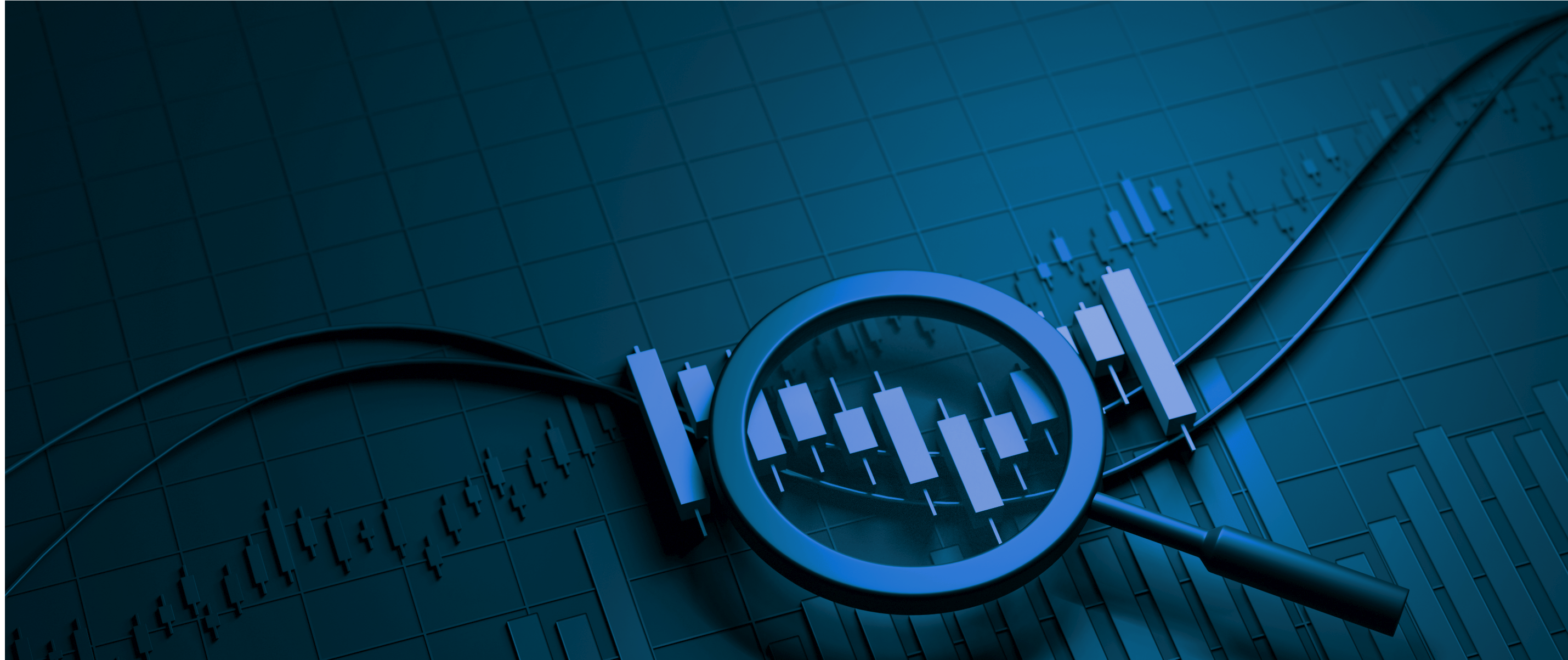
-
SupportSupportSupport

Support information for customers, including how to open an account, how to use the trading tools, and a collection of QAs from the help desk.
Recommended for beginner!
Account Opening Account Opening Account Opening
Detailed explanation of everything from how to open a real account to the deposit process.
MetaTrader4/5 User Guide MetaTrader4/5 User Guide MetaTrader4/5 User Guide
The most detailed explanation of how to install and operate MetaTrader anywhere.
FAQ FAQ FAQ
Do you have a question? All the answers are here.
Coming Soon
Glossary Glossary GlossaryGlossary of terms related to trading and investing in general, including FX, virtual currencies and CFDs.
News News News
Company and License Company and License Company and License
Sitemap Sitemap Sitemap
Contact Us Contact Us Contact Us
General, personal information and privacy inquiries.
close close

- Promotion
- Trader's Market
- Partner
-
close close
Learn more about the retail trading conditions, platforms, and products available for trading that FXON offers as a currency broker.
You can't start without it.
Features and functionality comparison of MetaTrader 4/5, and correspondence table of each function by OS
Two account types to choose
Introducing FXON's Standard and Elite accounts.
Support information for customers, including how to open an account, how to use the trading tools, and a collection of QAs from the help desk.
Recommended for beginner!
Detailed explanation of everything from how to open a real account to the deposit process.
The most detailed explanation of how to install and operate MetaTrader anywhere.
Do you have a question? All the answers are here.
Coming Soon
Glossary of terms related to trading and investing in general, including FX, virtual currencies and CFDs.
General, personal information and privacy inquiries.
Useful information for trading and market information is posted here. You can also view trader-to-trader trading performance portfolios.
Find a trading buddy!
Share trading results among traders. Share operational results and trading methods.
- Legal Documents TOP
- Client Agreement
- Risk Disclosure and Warning Notice
- Order and Execution Policy
- Complaints Procedure Policy
- AML/CFT and KYC Policy
- Privacy Policy
- eKYC Usage Policy
- Cookies Policy
- Website Access and Usage Policy
- Introducer Agreement
- Business Partner Agreement
- VPS Service Terms and Condition


This article was :
published
updated
On MetaTrader4 (MT4) / MetaTrader5 (MT5), you can draw trendlines, trendlines by angle, and cycle lines. They are often used to read and analyze trends, momentum, and cycles of the market.
Here, we'll take a look at how to draw and set up the trendline, the most often used line.
Switch between MT4/MT5 tabs to check the steps for each.
Step 1
Trendlines can be displayed from the menu or toolbar.
Draw a trendline from the menu
Click "Insert" in the menu. Hover the pointer over "Lines" and select "Trendline".
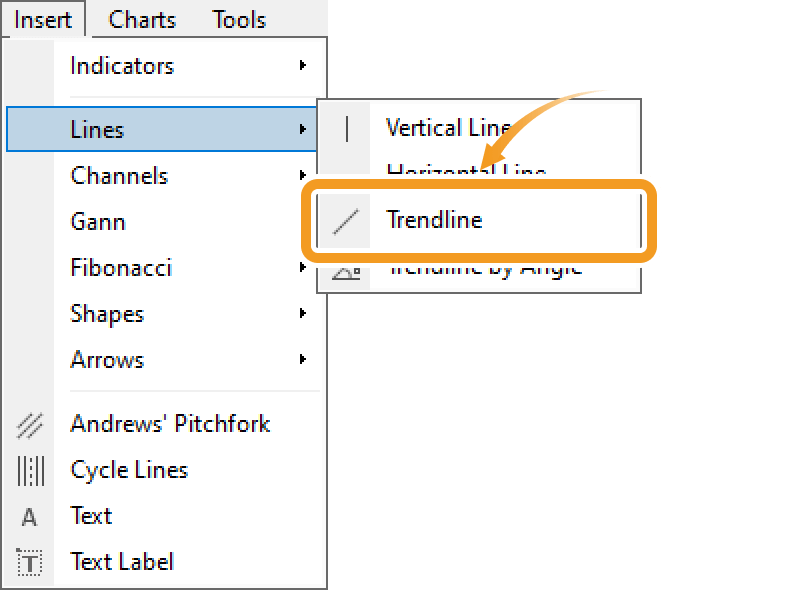
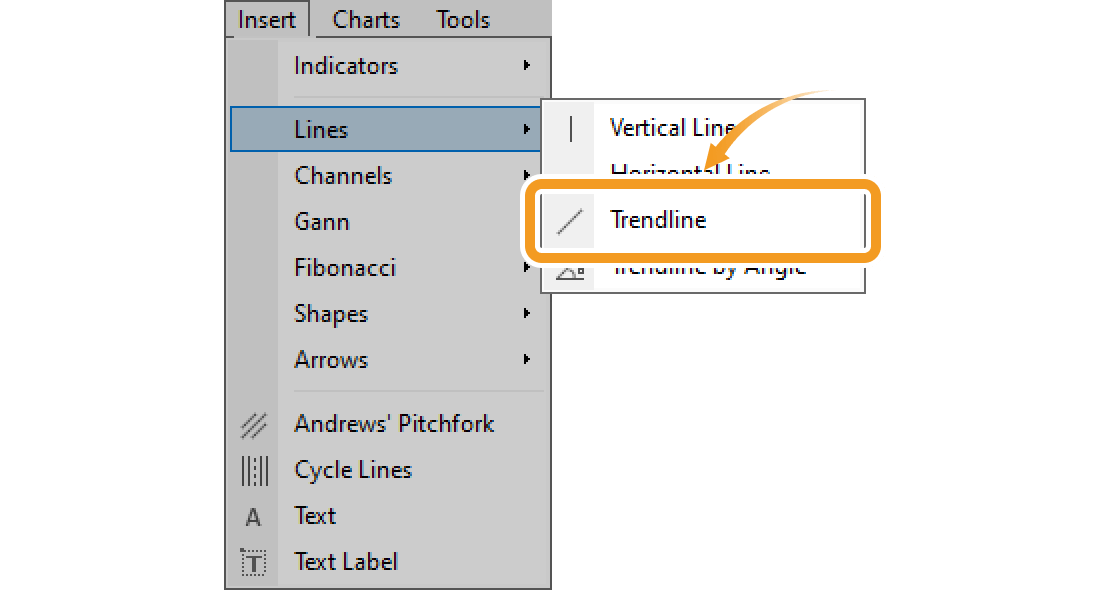
-
Trendline
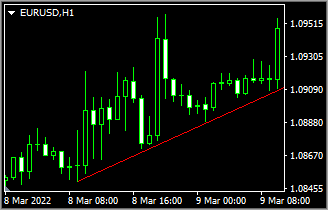
Trendline connects the low, high, or close prices to read the trend. The trendline will help you determine the direction and momentum of a trend.
-
Trend by Angle
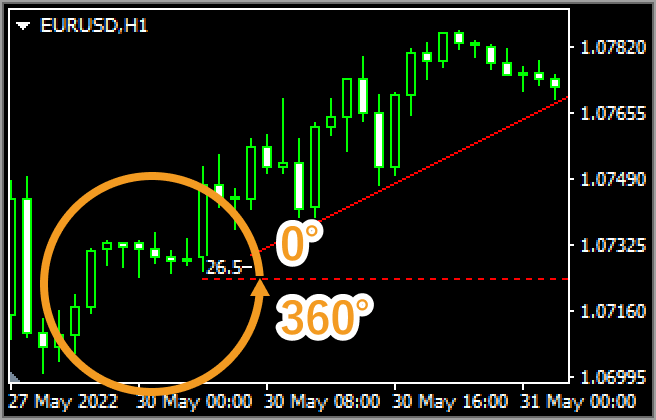
Trendline by Angle is the trendline with a specified angle. The angle relative to the horizontal line will be displayed. Analyze the angle of the trend line to determine the strength of a trend.
Draw a trendline from the toolbar
Click the "Draw trendline" button on the toolbar.


Step 2
Click at the starting point of the trendline on the chart and drag to the end point.
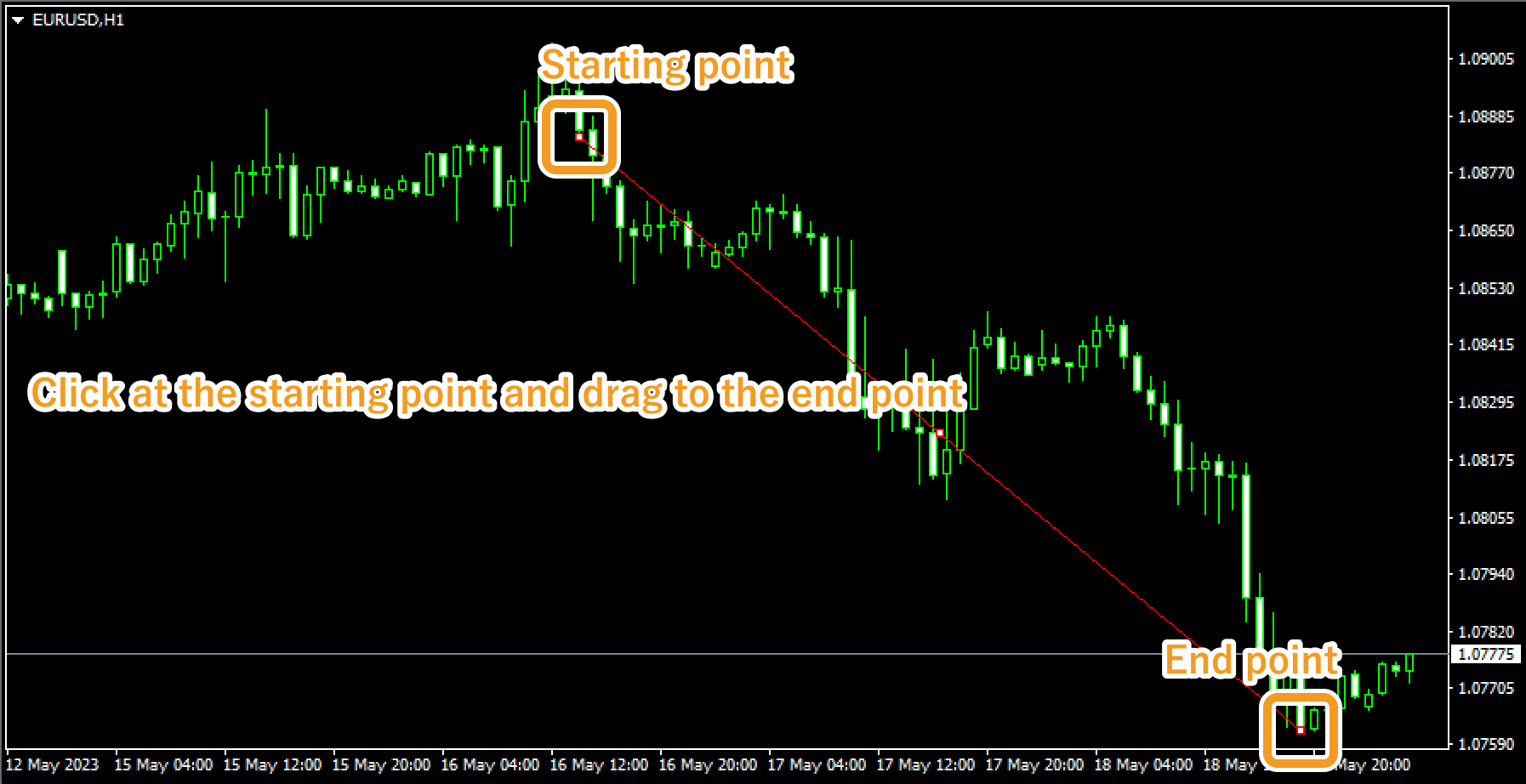
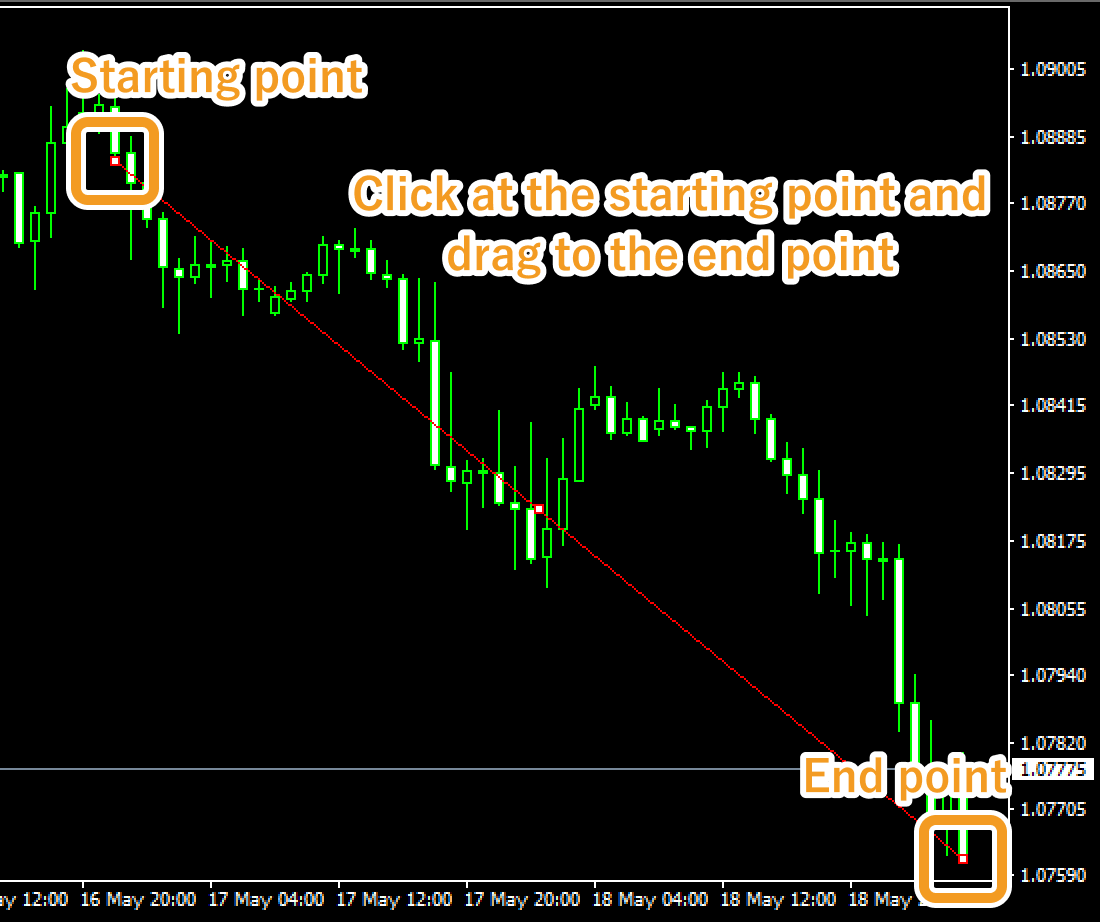
Step 3
If you want to adjust the position of trendline, make sure the white dots are being displayed on the trendline and move each dot as necessary. If you cannot see the white dots, double-click near the trendline to display the white dots.
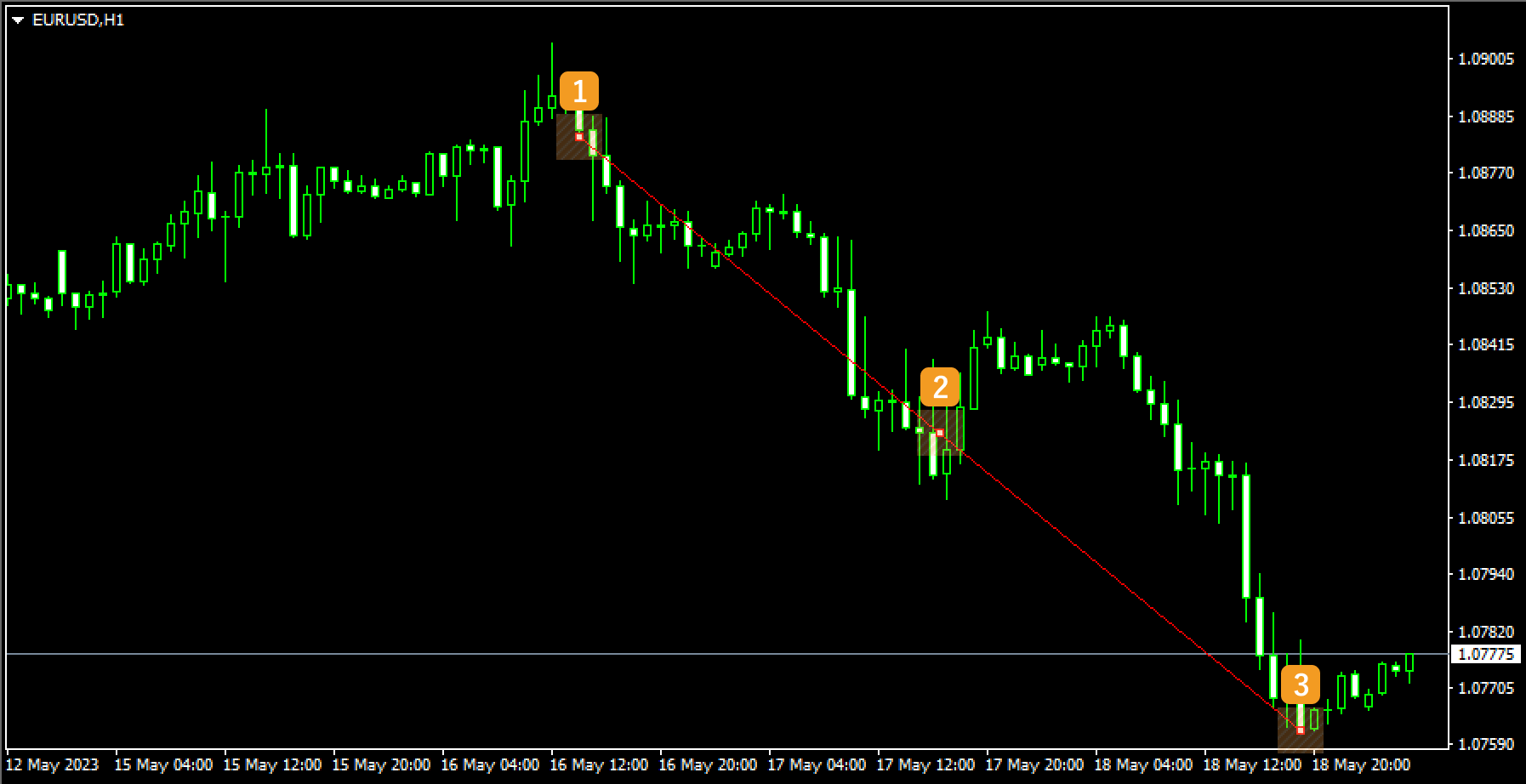
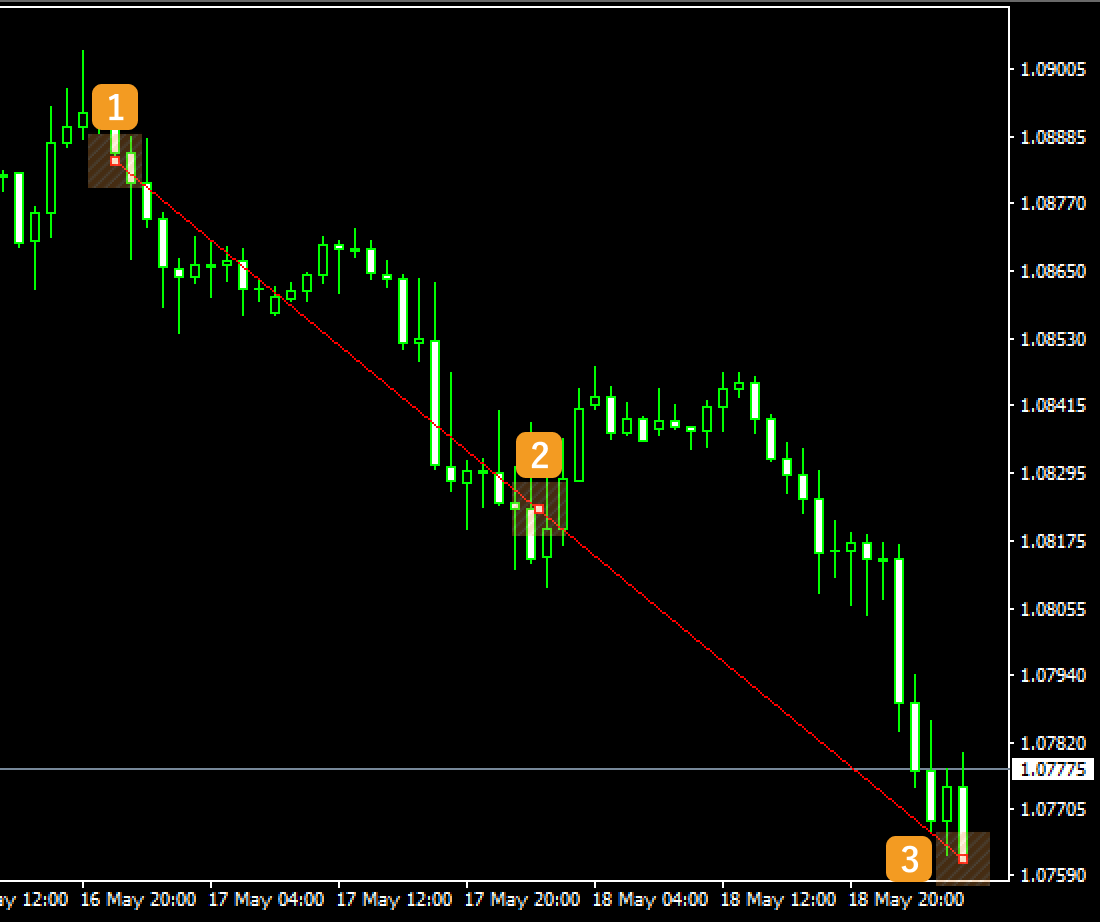
|
Number |
Descriptions |
|---|---|
|
1 |
Change the starting point of the trendline. |
|
2 |
Change the position of the trendline. |
|
3 |
Change the end point of the trendline. |
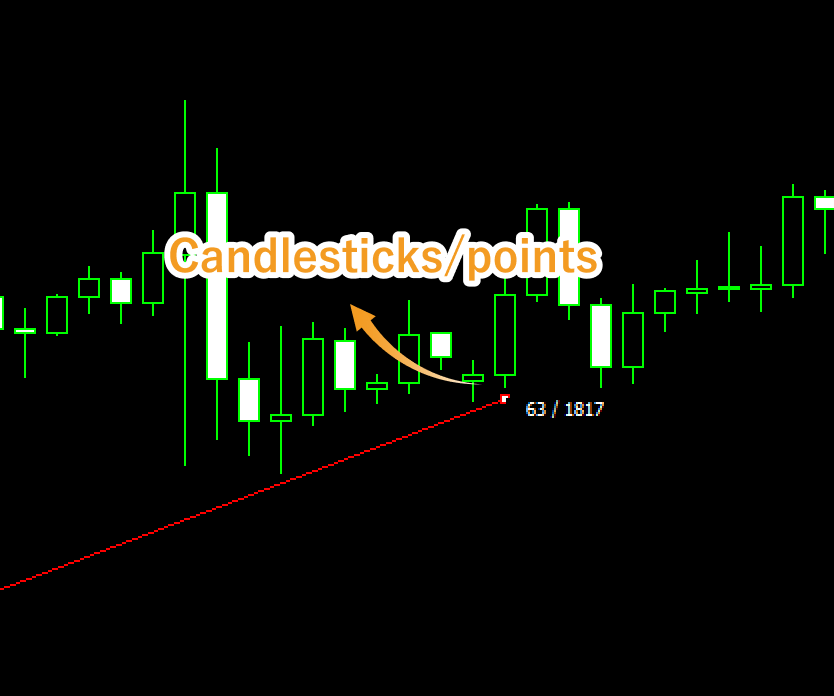
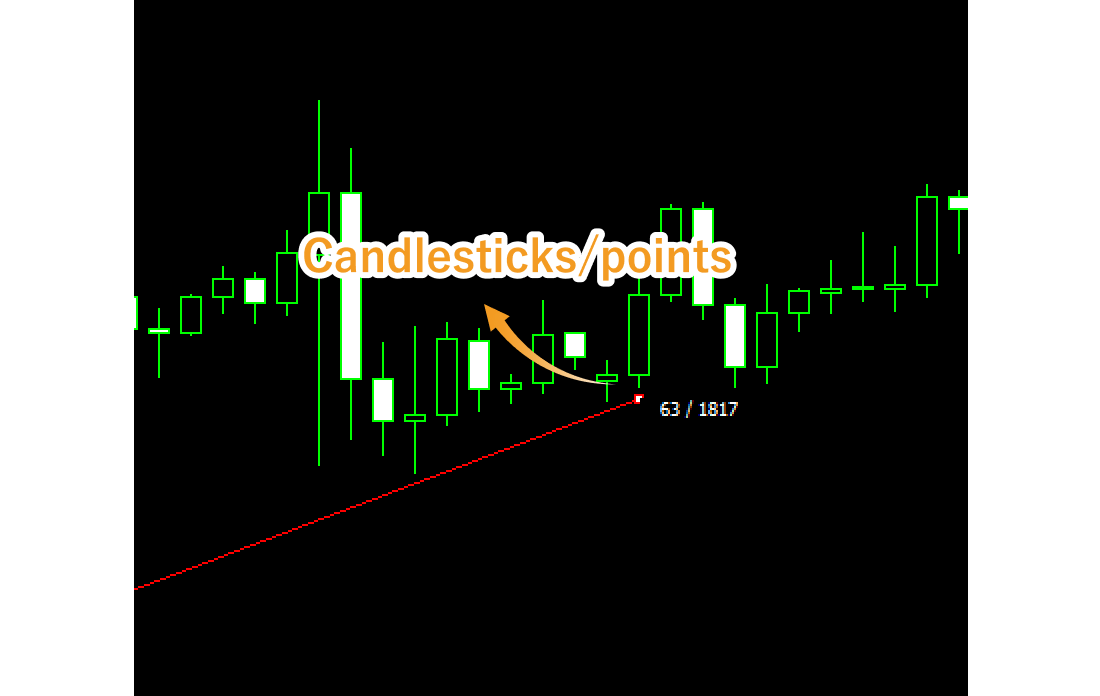
Values displayed when dragging indicate the numbers of candlesticks and points from the starting point to the end point.
Step 4
To modify the trendline settings, right-click near the trendline and select "Trendline properties...".
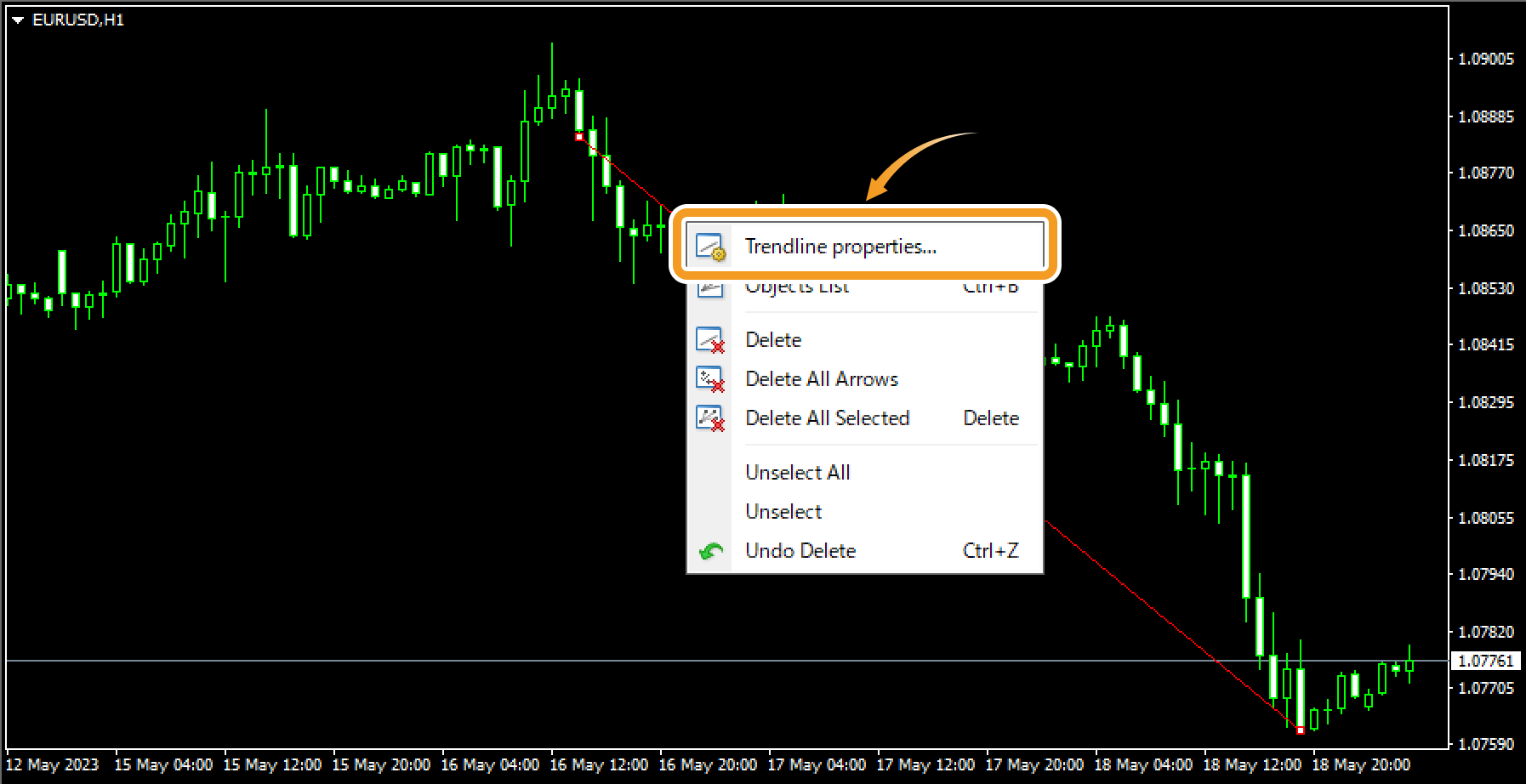
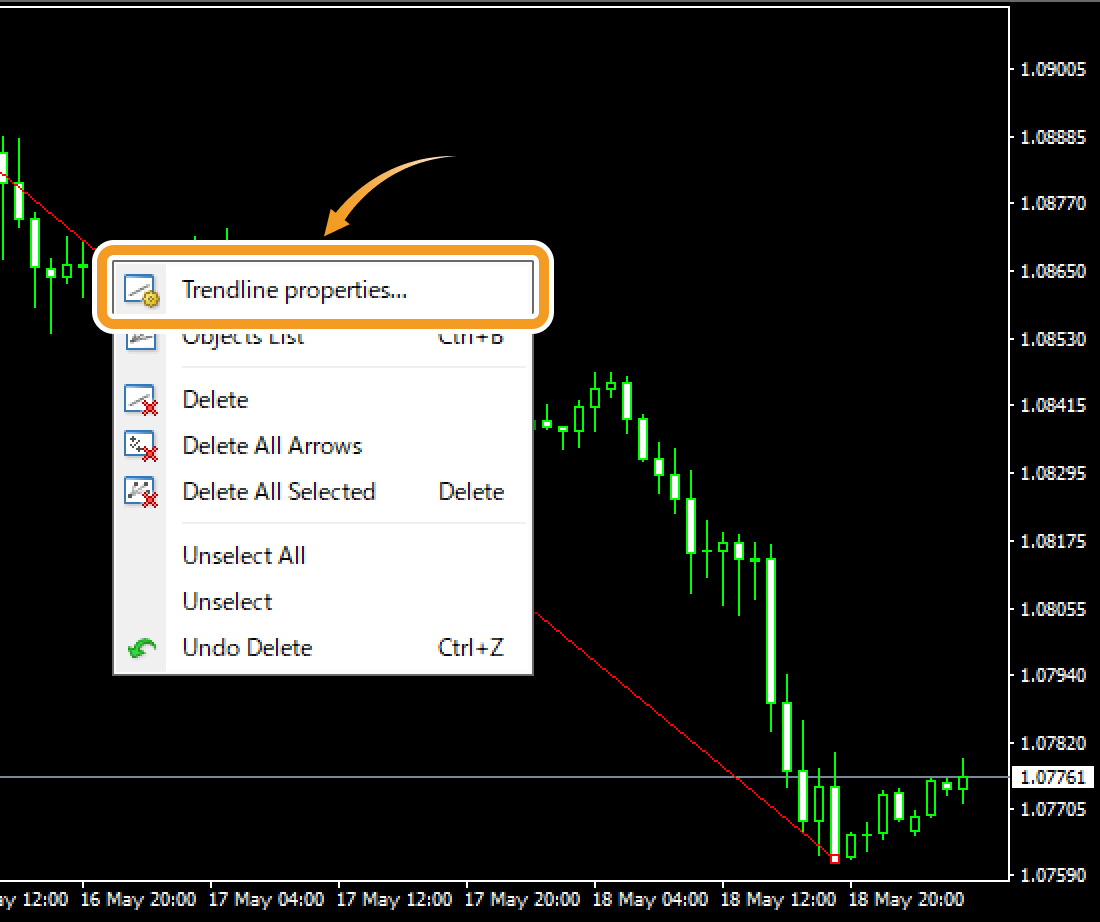
Step 5
Edit the parameters of the trendline in the three tabs, "Common", "Parameters", and "Visualization", and click "OK".
"Common" tab
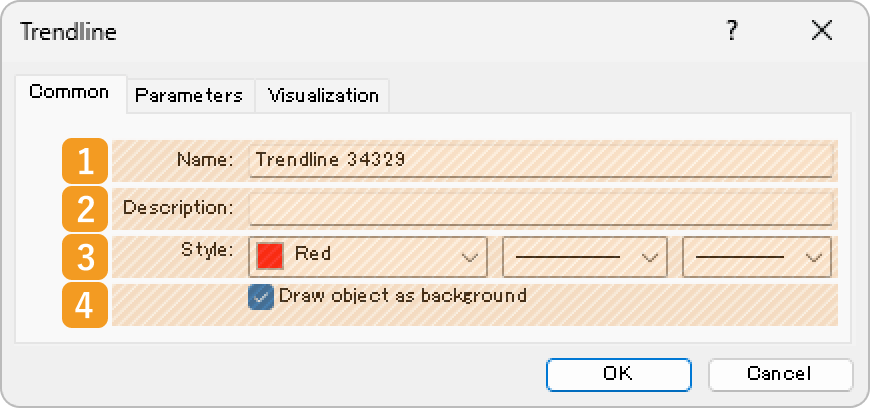

|
Number |
Item name |
Descriptions |
|---|---|---|
|
1 |
Name |
Name the trendline. |
|
2 |
Description |
The description can be displayed on the chart when hovering the pointer over the trendline. |
|
3 |
Style |
Set the color, line type, and line thickness for the trendline. |
|
4 |
Draw object as background |
Check this box if you want to place the trendline behind the chart. |
"Parameters" tab
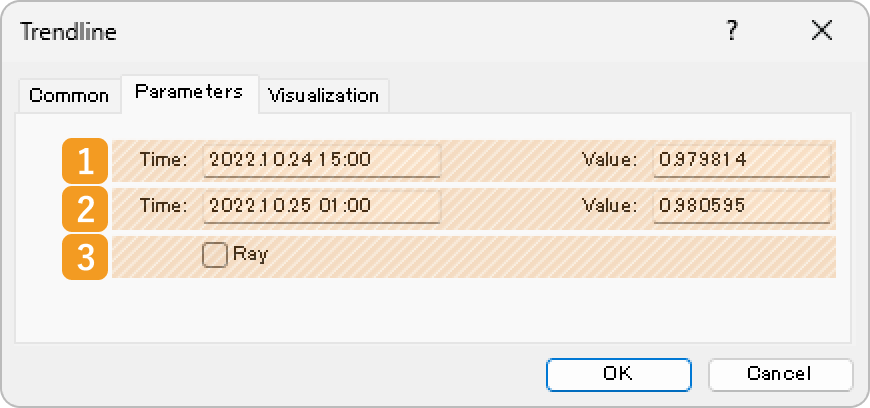
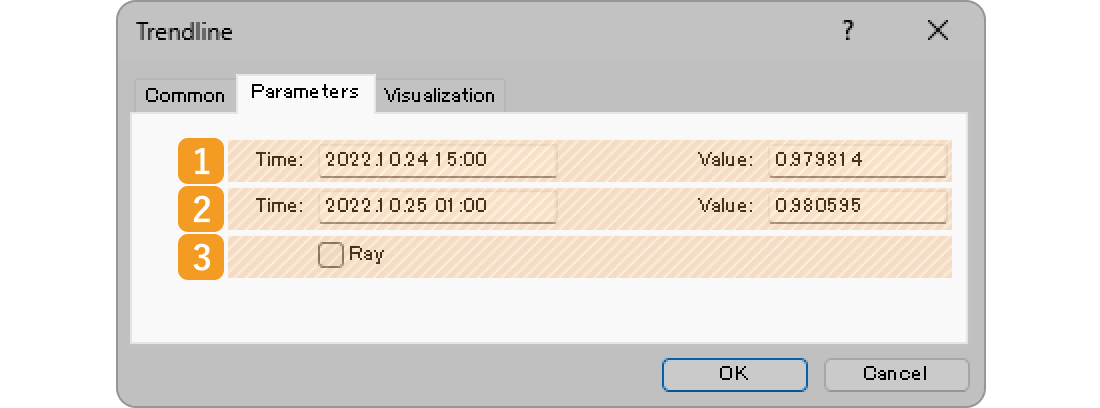
|
Number |
Item name |
Descriptions |
|---|---|---|
|
1 |
Starting point position |
Specify the starting point position by date and price. |
|
2 |
End point position |
Specify the end point position by date and price. |
|
3 |
Ray |
Check this box to extend the trendline beyond its end point. |
"Ray" is a parameter that can be set on an object such as a channel to extend the line beyond its end point. This makes it easier to analyze, as the line will be extended into the future, based on the price movement between the starting point and the end point at a certain point in time.
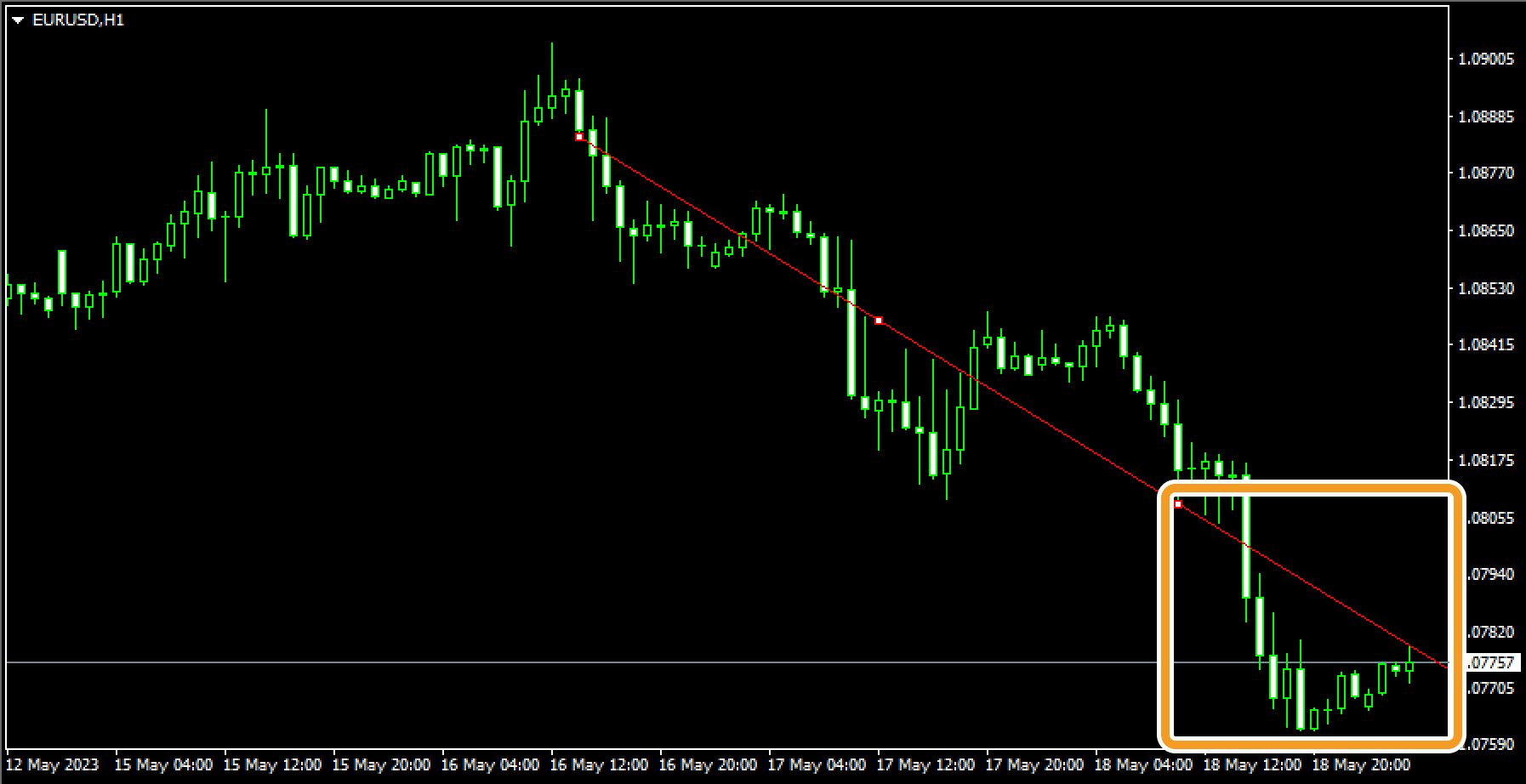
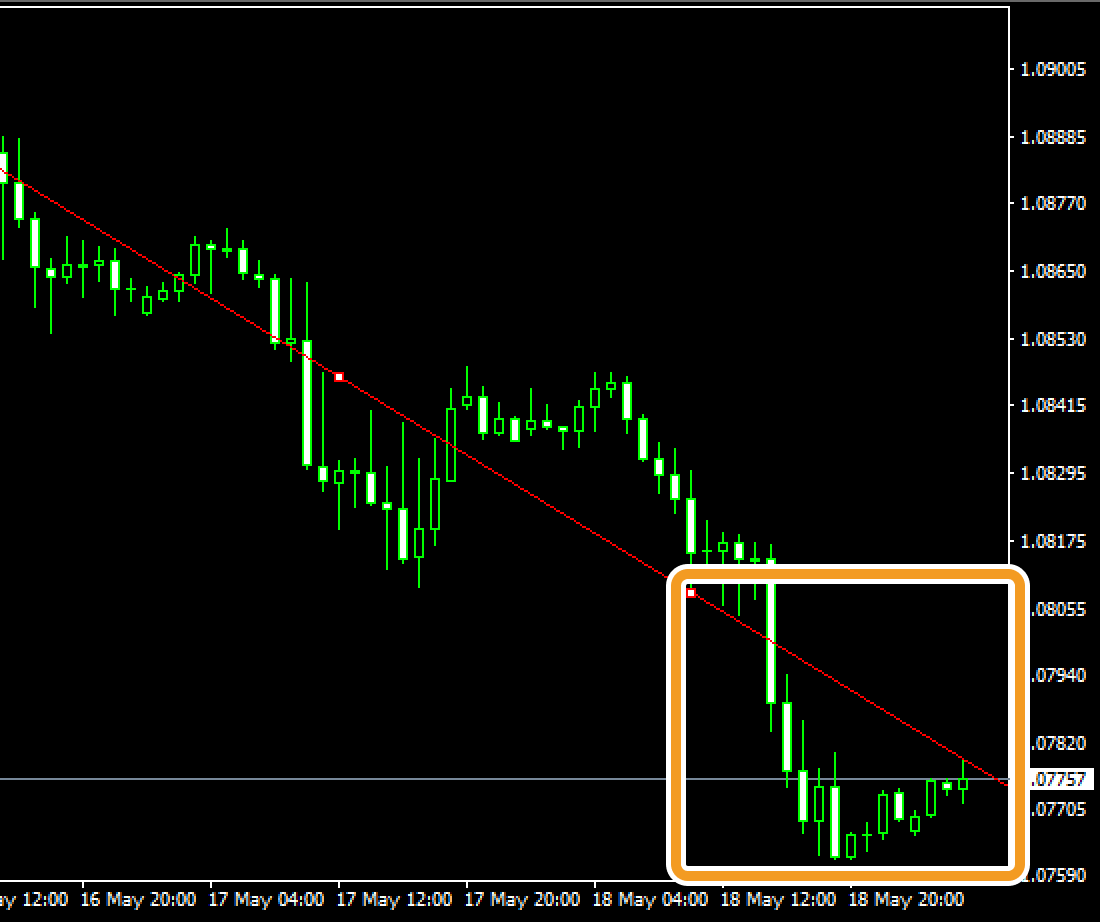
"Visualization" tab
On the "Visualization" tab, you can specify the timeframes to use the trendline with.
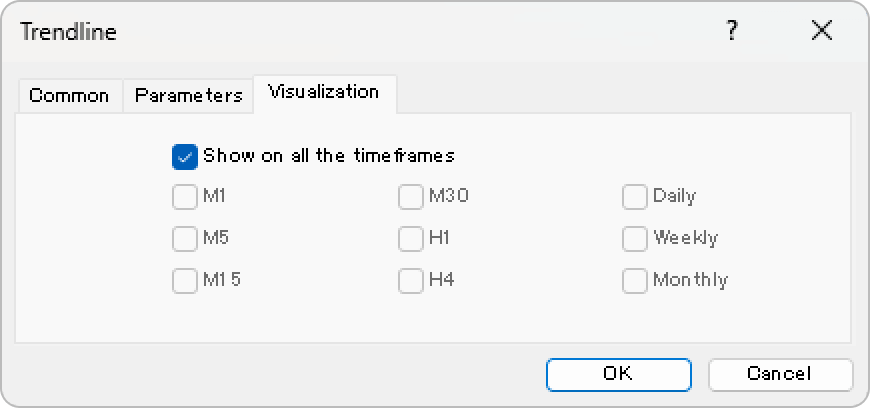
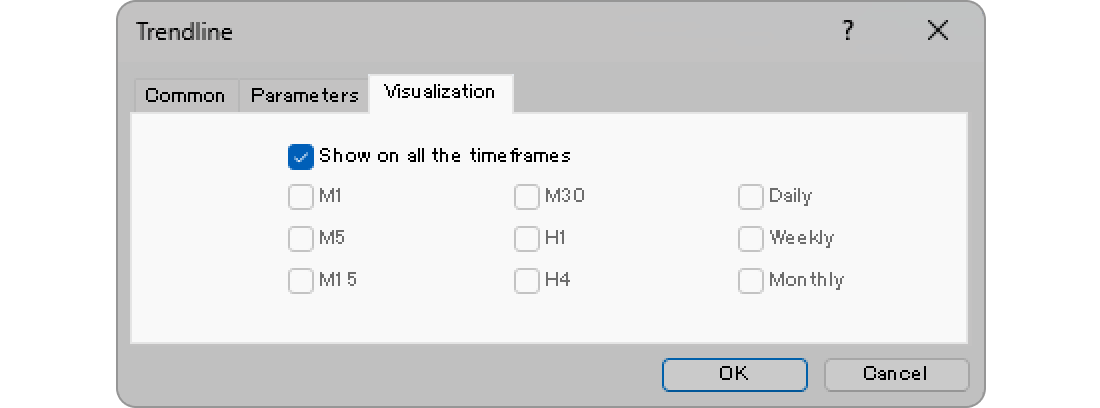
Unlike conventional trendlines, which connect two highs or two lows, internal trendlines are drawn between various points, such as highs and lows or closes and lows. This approach offers greater flexibility and a fresh analytical perspective but can also introduce a high degree of subjectivity.
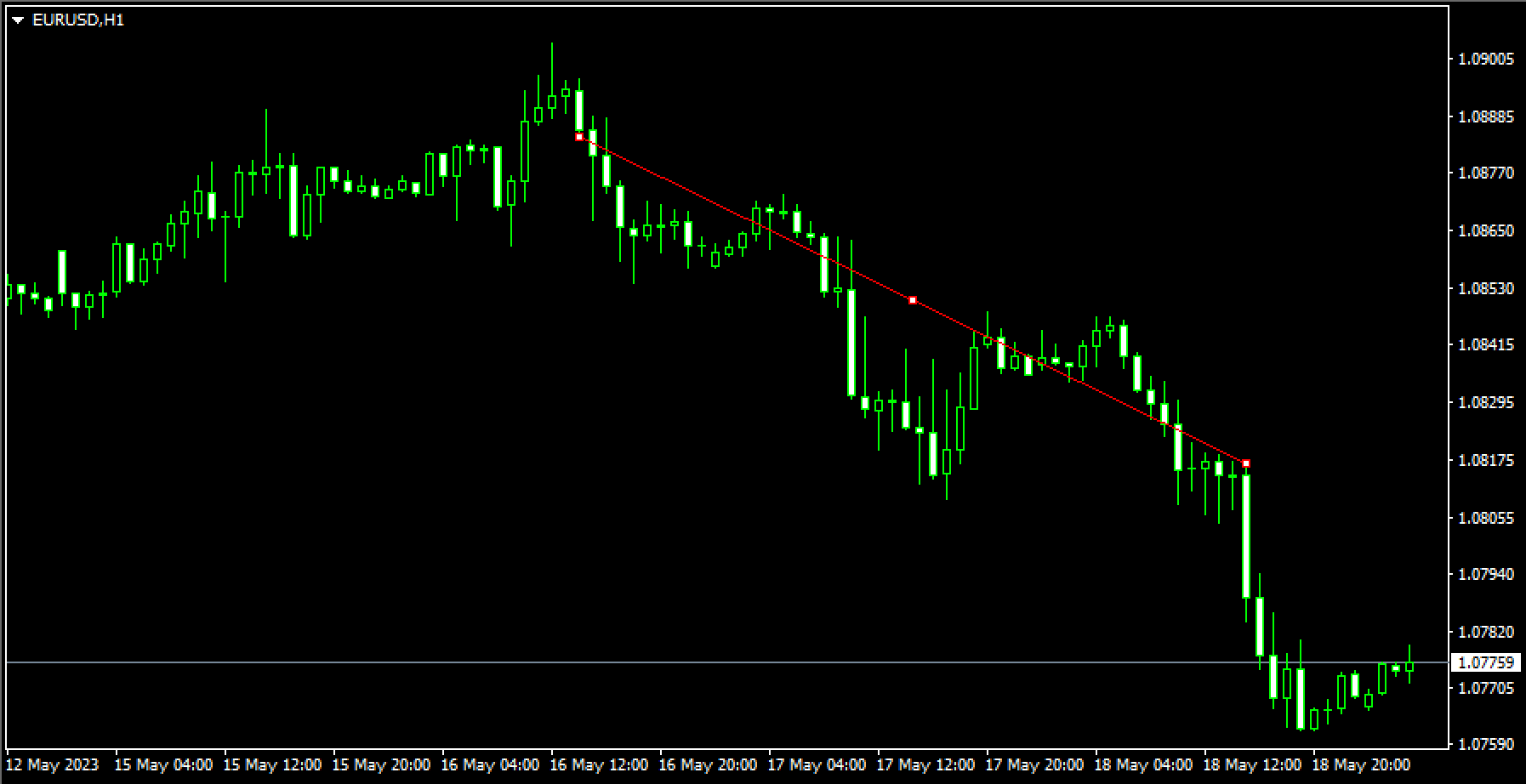
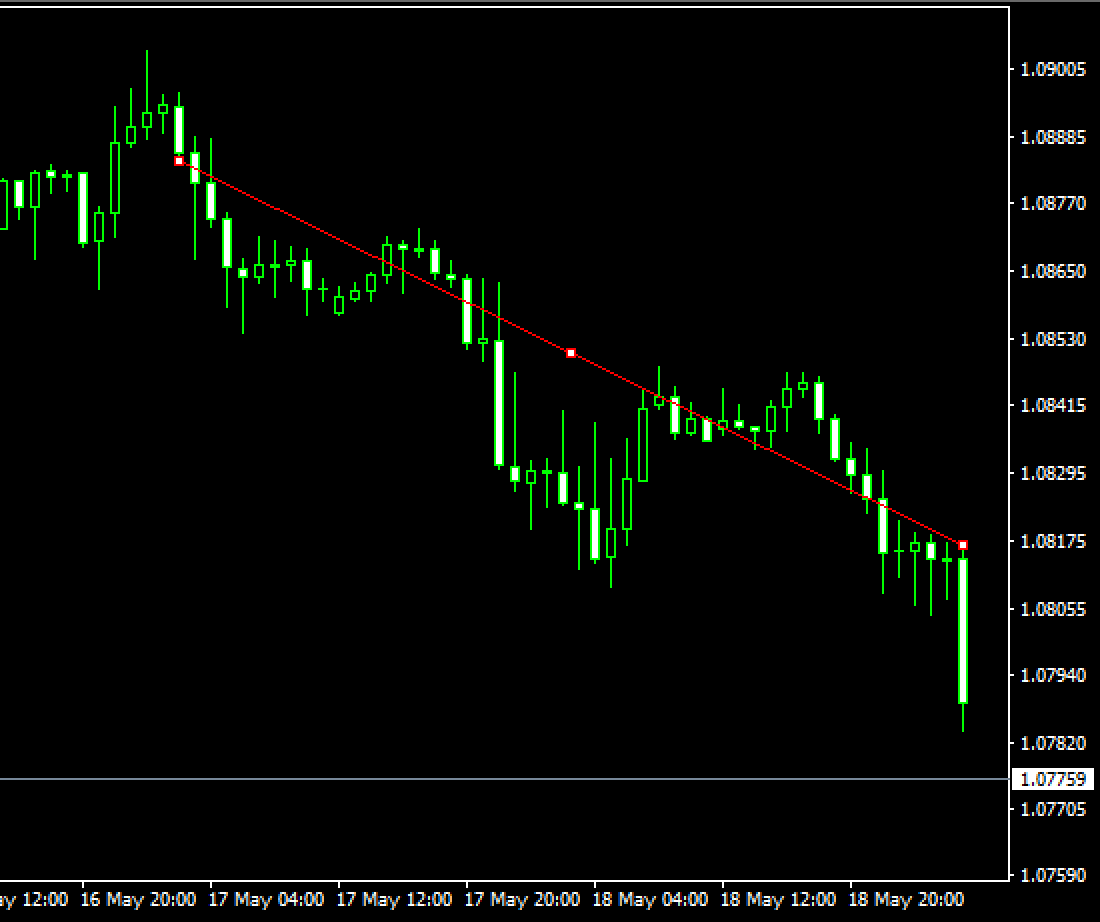
Step 1
Trendlines can be displayed from the menu or toolbar.
Draw a trendline from the menu
Click "Insert" in the menu. Hover the pointer over "Objects" > "Lines" and select "Trendline".
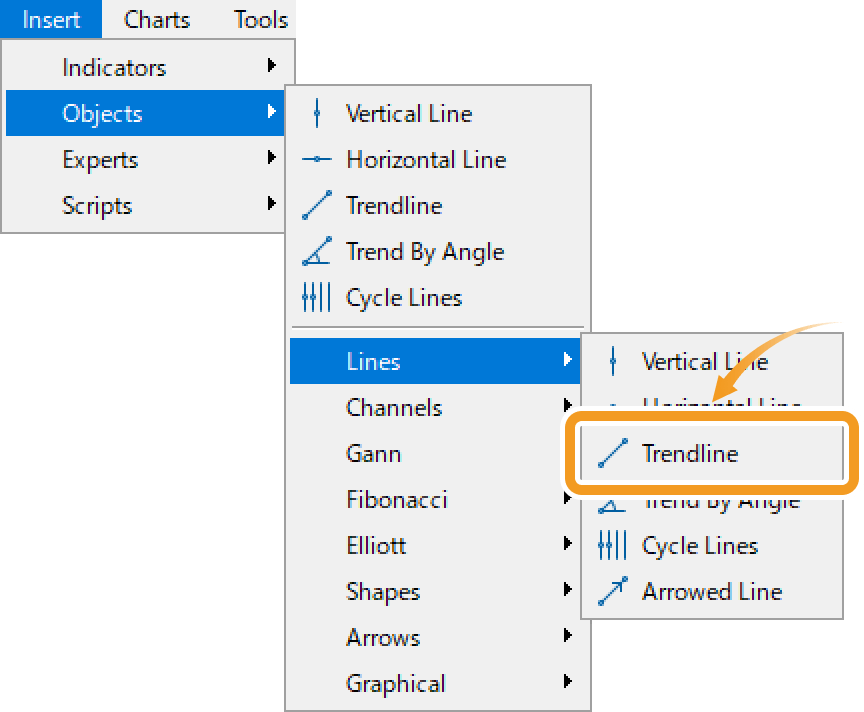
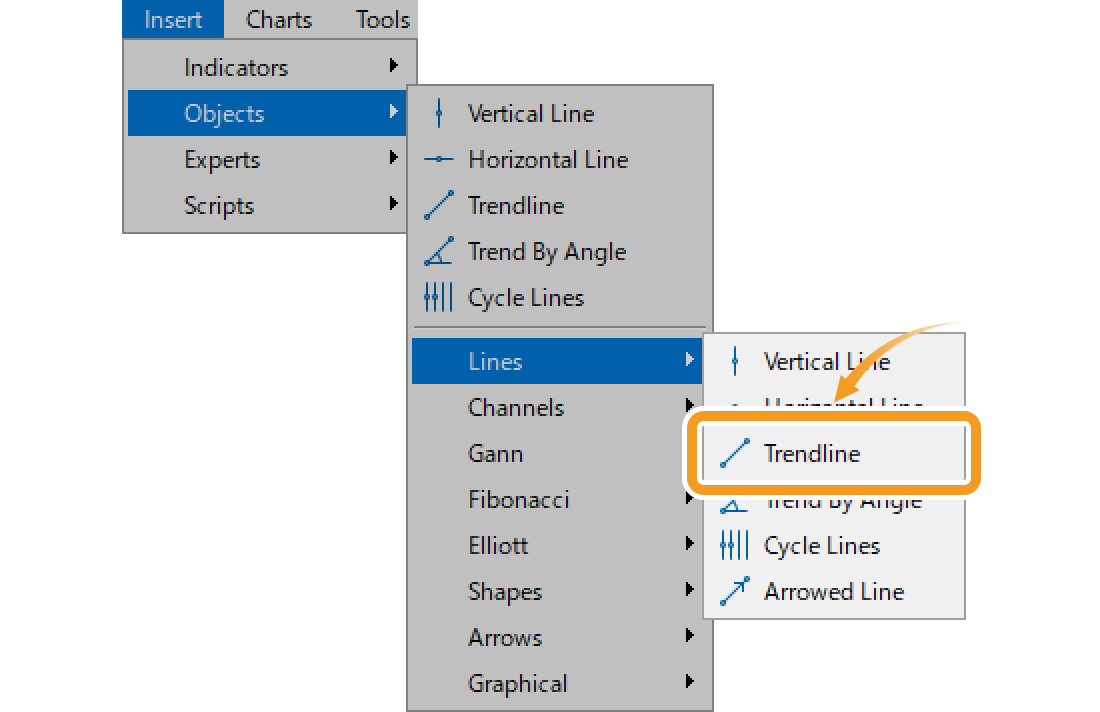
-
Trendline
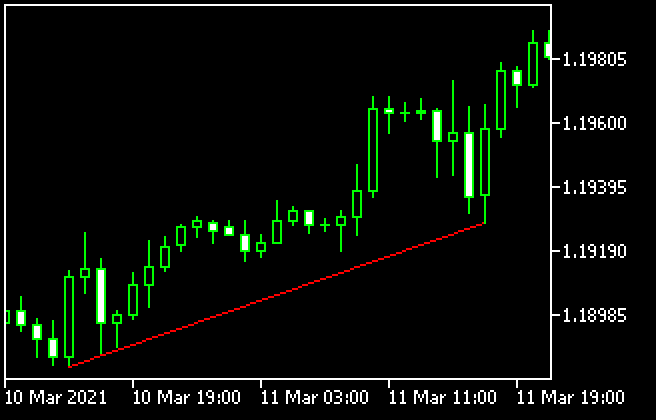
Trendline connects the low, high, or close prices to read the trend. The trendline will help you determine the direction and momentum of a trend.
-
Trend By Angle
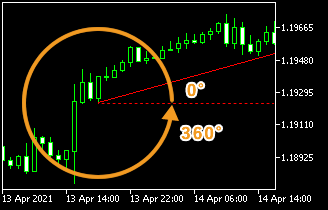
Trendline by Angle is the trendline with a specified angle. The angle relative to the horizontal line will be displayed. Analyze the angle of the trend line to determine the strength of a trend.
-
Cycle Lines
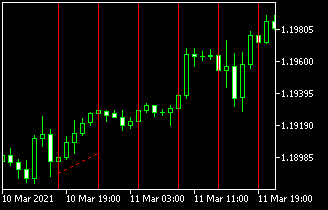
Cycle lines are made up of multiple evenly-spaced vertical lines. This tool is based on the theory that a trend repeats itself in cycles. Analyze the cycle line to help you determine the ceiling and floor of a trend.
Draw a trendline from the toolbar
Click the "Draw trendline" button on the toolbar.


Step 2
Click at the starting point of the trendline on the chart and drag to the end point.
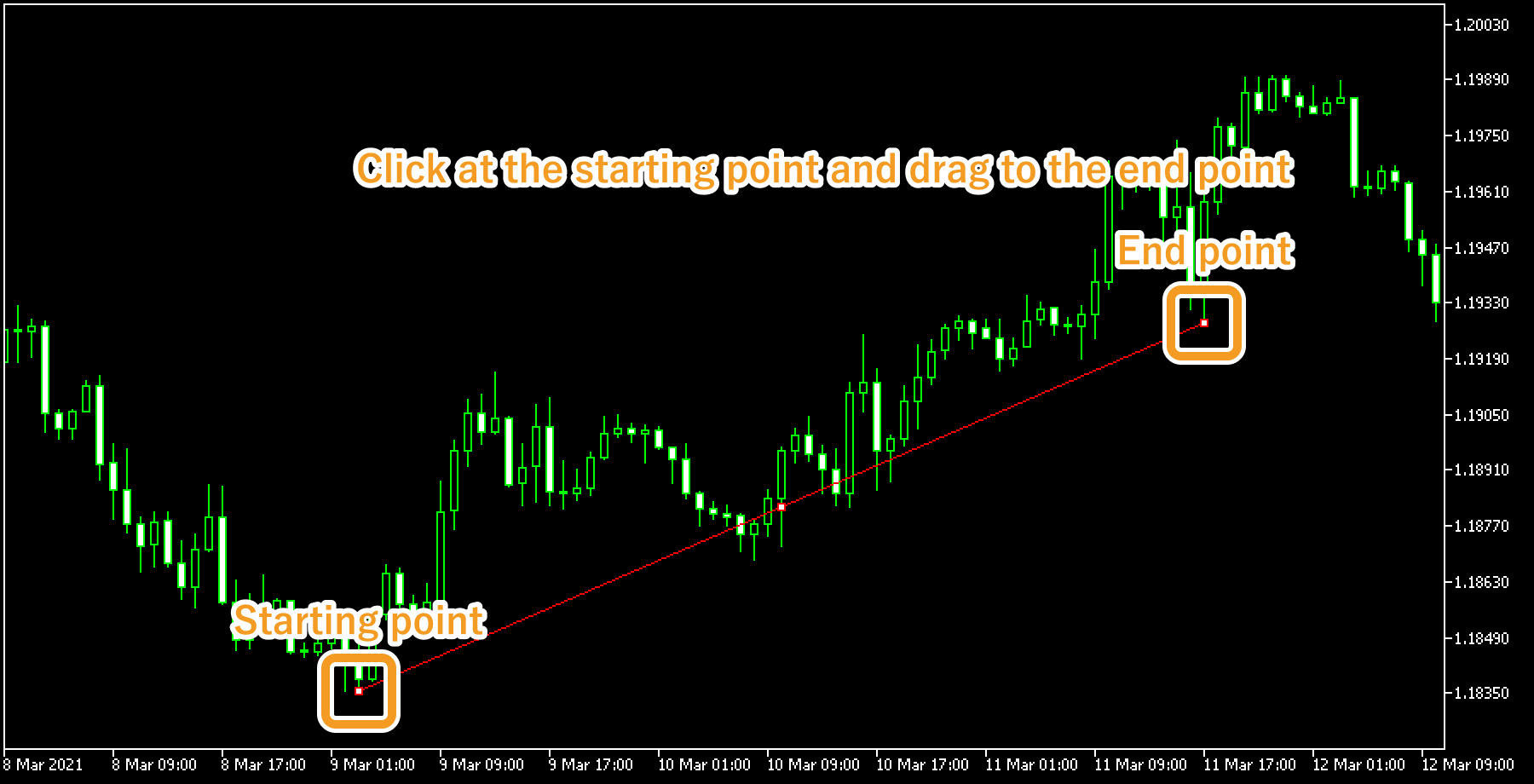
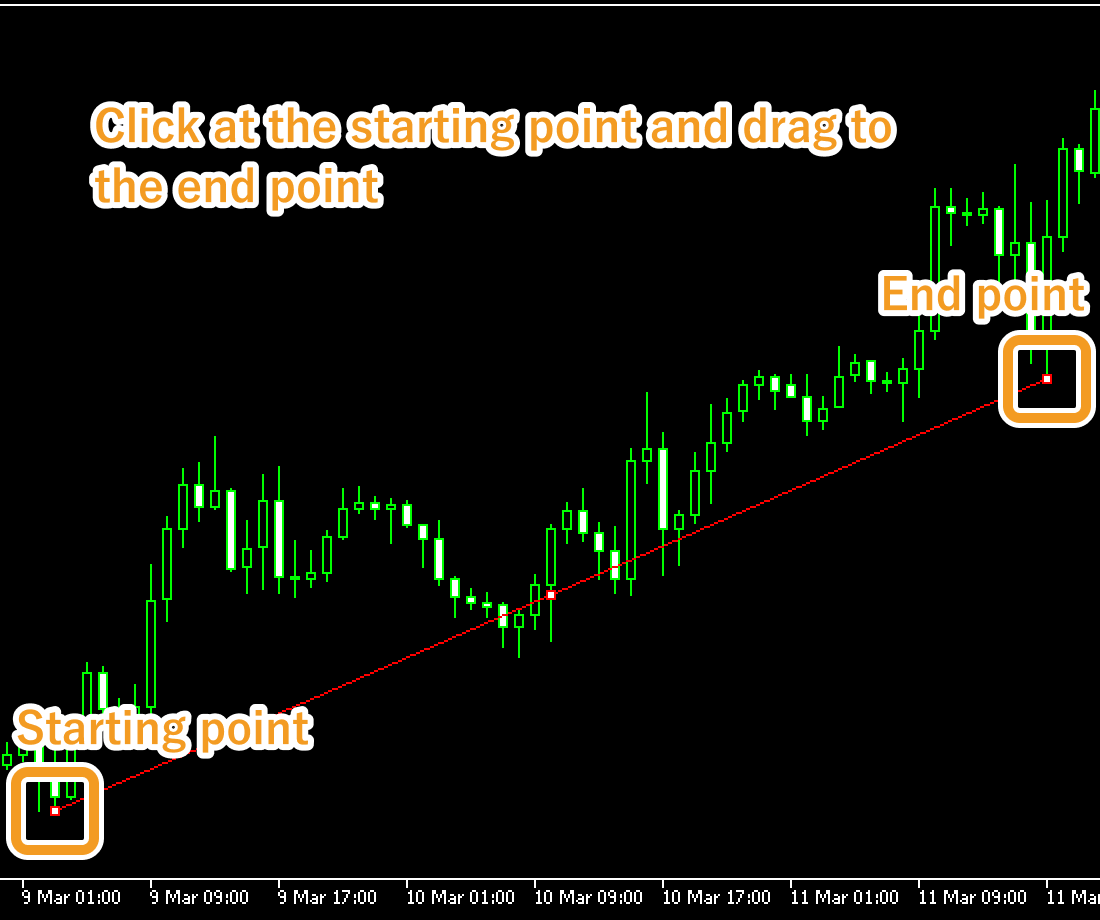
Step 3
If you want to adjust the position of trendline, make sure the white dots are being displayed on the trendline and move each dot as necessary. If you cannot see the white dots, double-click near the trendline to display the white dots.
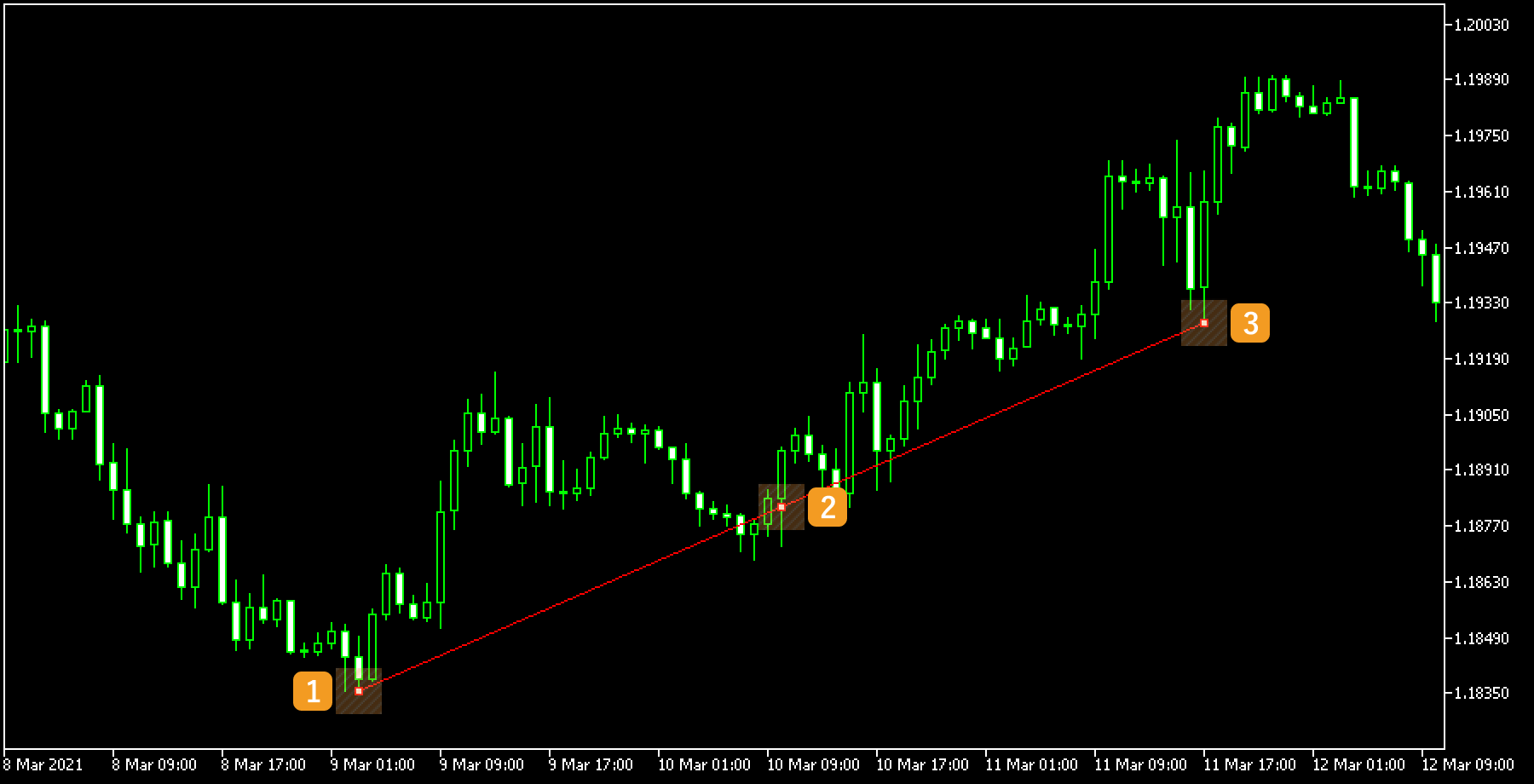
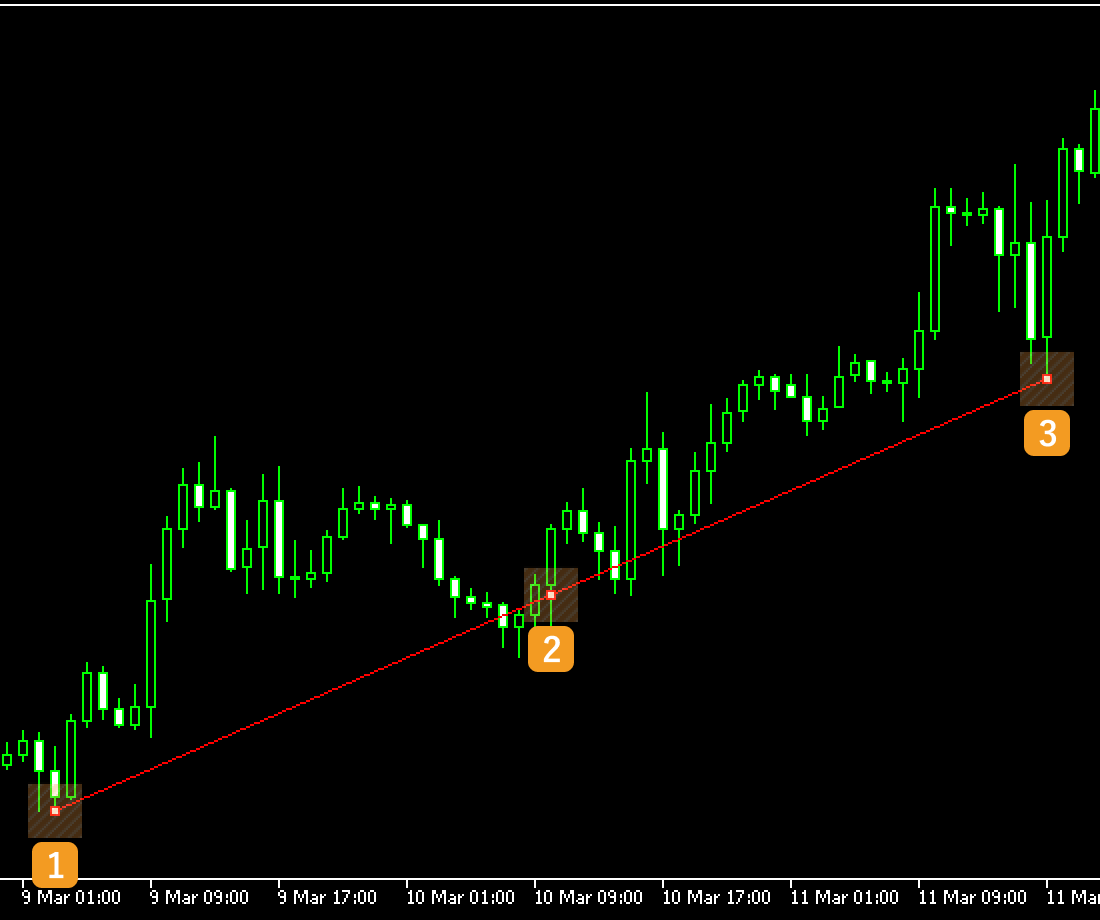
|
Number |
Descriptions |
|---|---|
|
1 |
Change the starting point of the trendline. |
|
2 |
Change the position of the trendline. |
|
3 |
Change the end point of the trendline. |
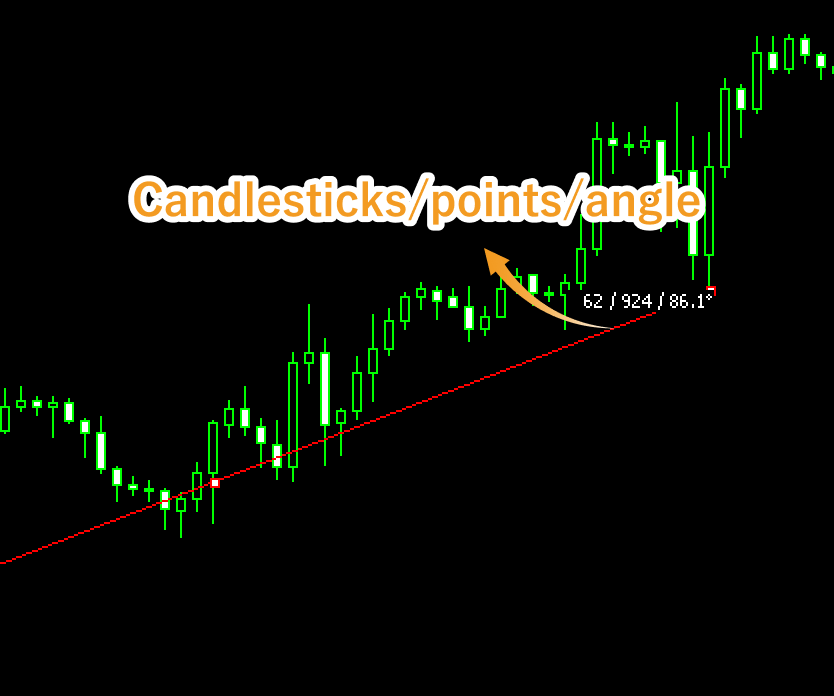
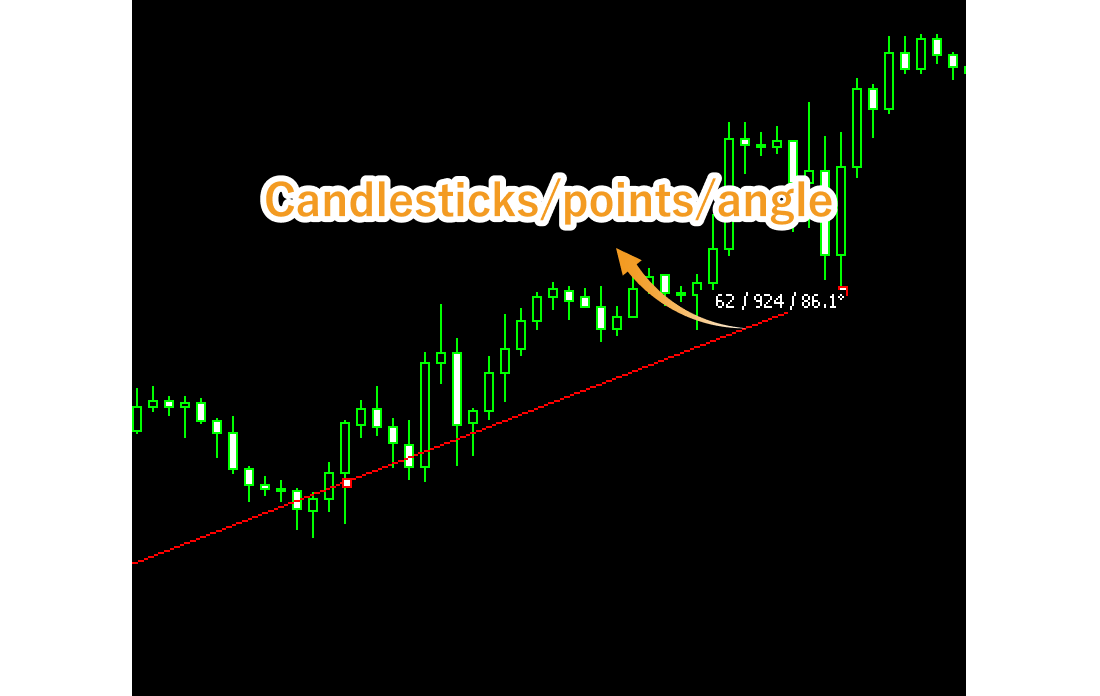
Values displayed when dragging indicate the numbers of candlesticks and points from the starting point to the end point.
Step 4
To modify the trendline settings, right-click near the trendline and select "Properties".
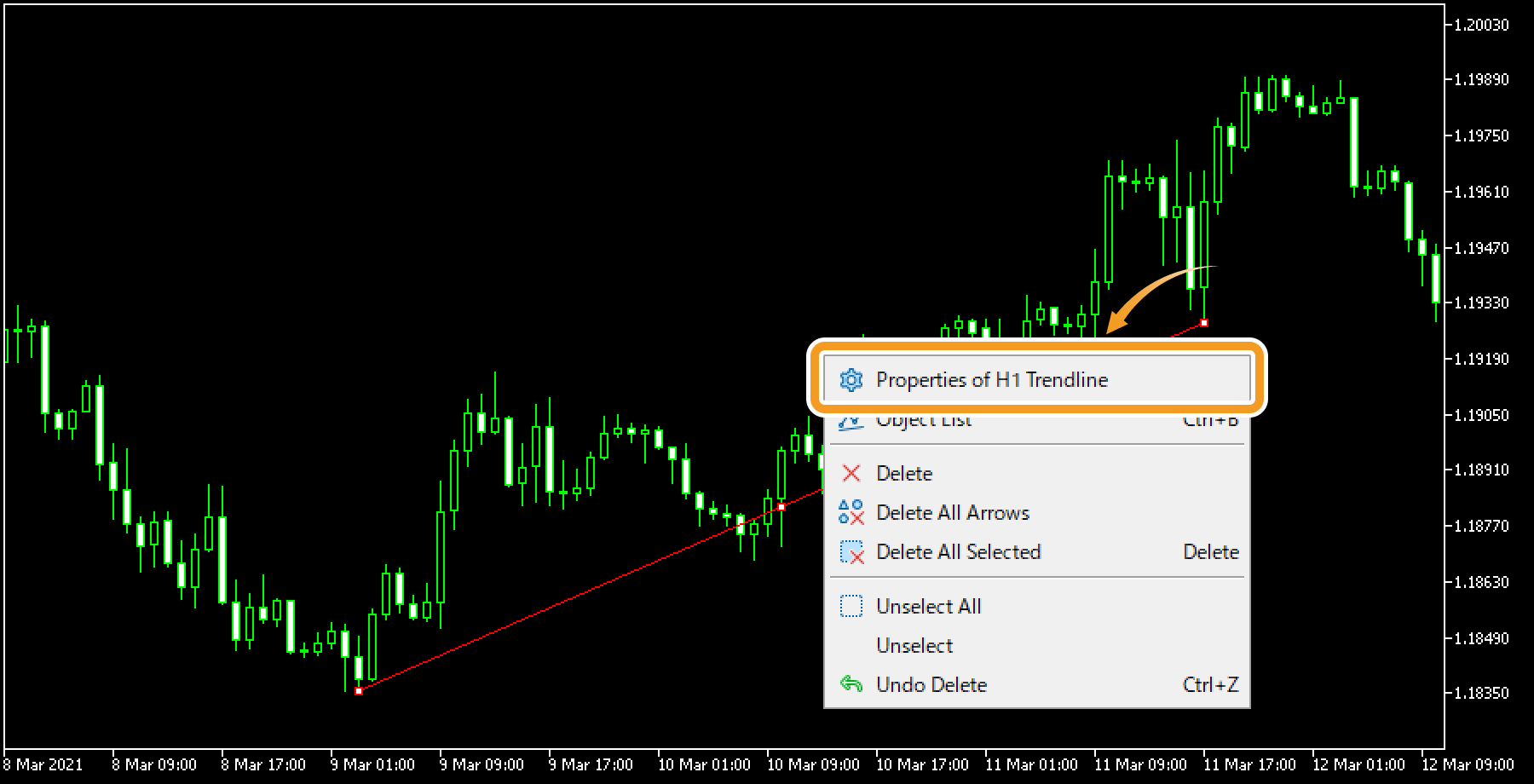
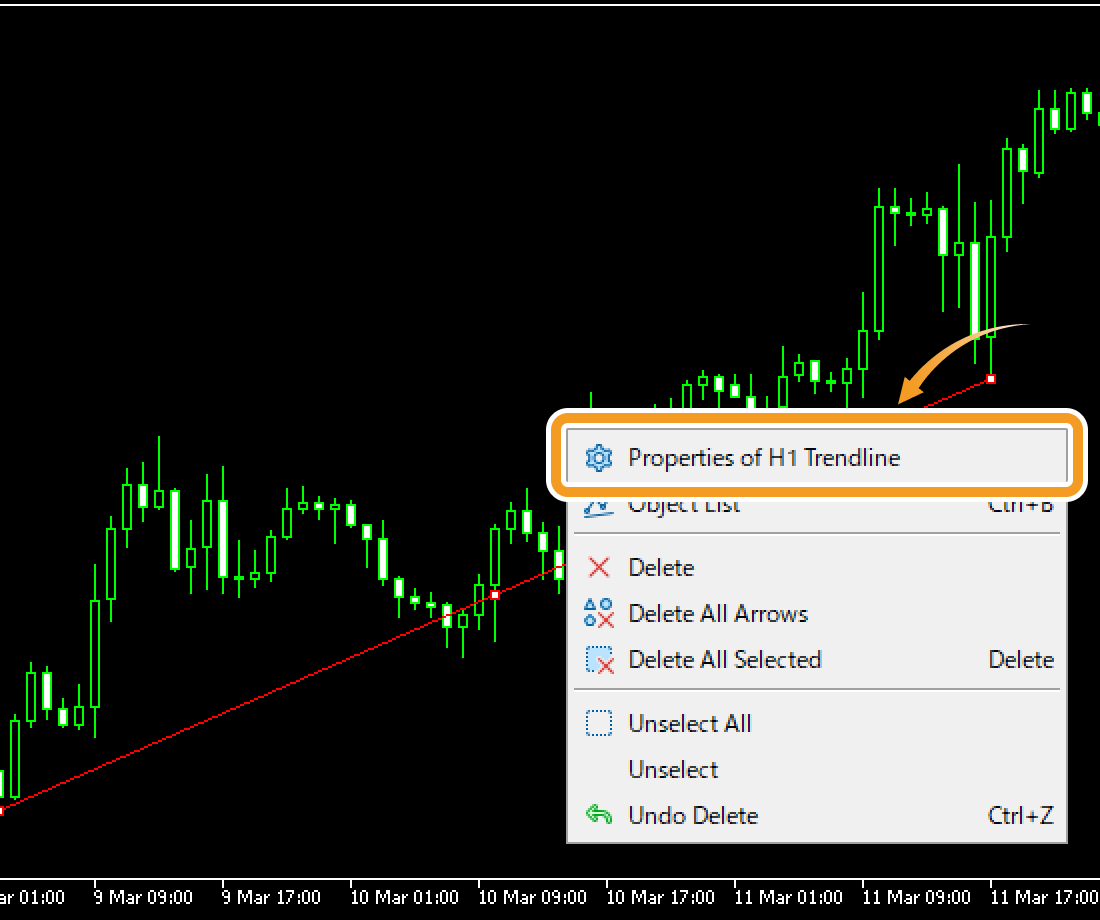
Step 5
Edit the parameters of the trendline in the three tabs, "Common", "Parameters", and "Visualization", and click "OK".
"Common" tab
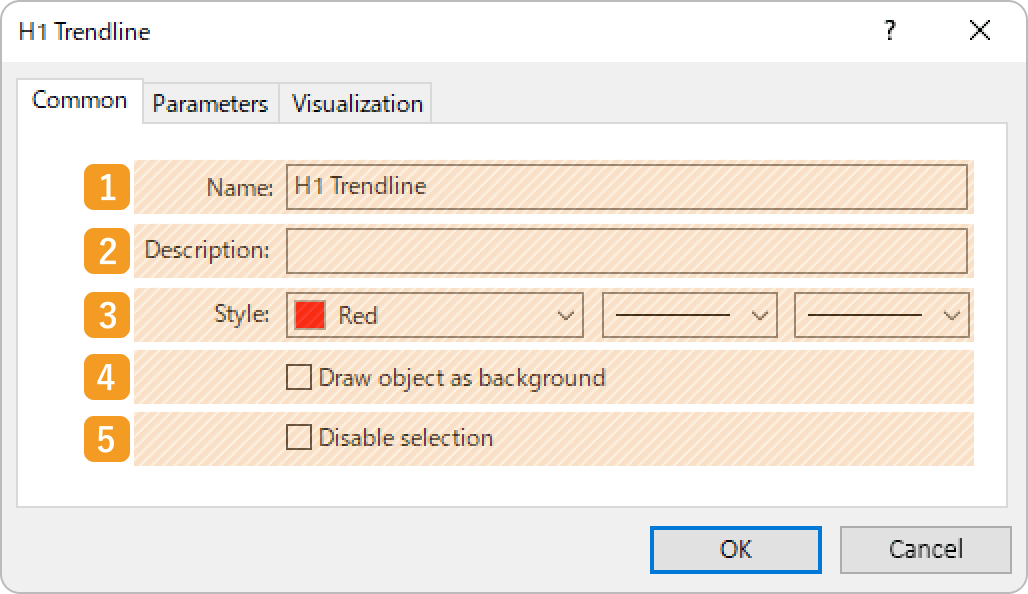
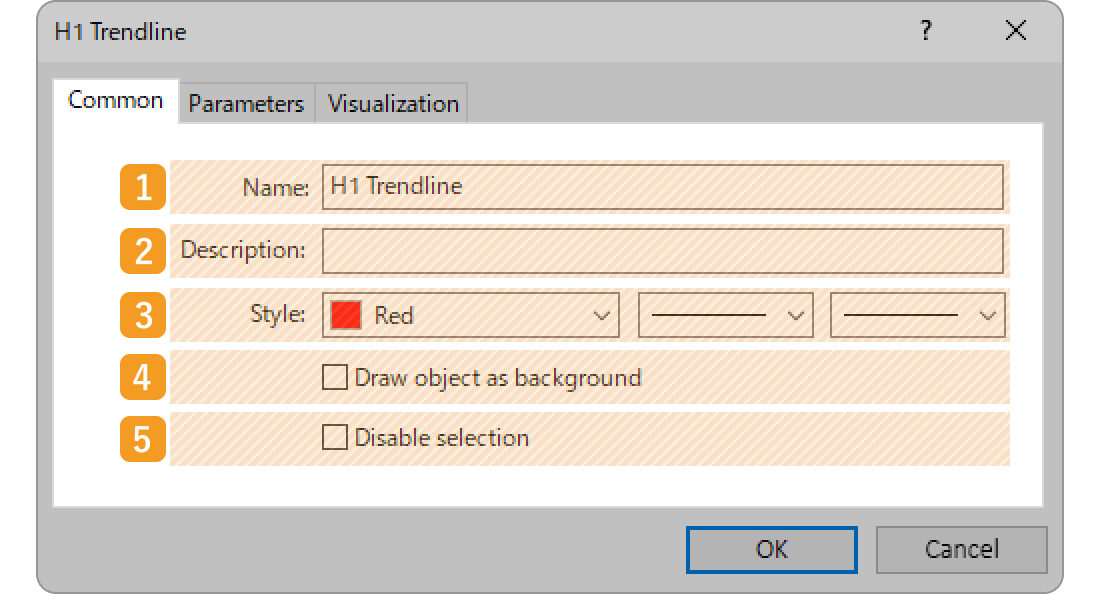
|
Number |
Item name |
Descriptions |
|---|---|---|
|
1 |
Name |
Name the trendline. |
|
2 |
Description |
The description of the trendline can be displayed on the chart. |
|
3 |
Style |
Set the color, line type, and line thickness for the trendline. |
|
4 |
Draw object as background |
Check this box if you want to place the trendline behind the chart. |
|
5 |
Disable selection |
Check this box if you want to disable the editing of the trendline. |
"Parameters" tab
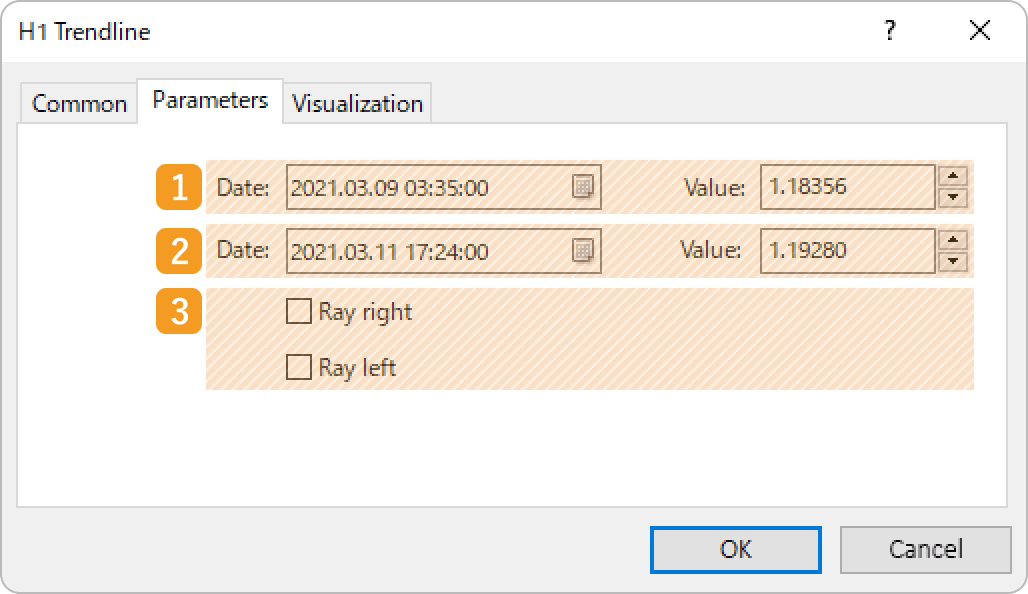
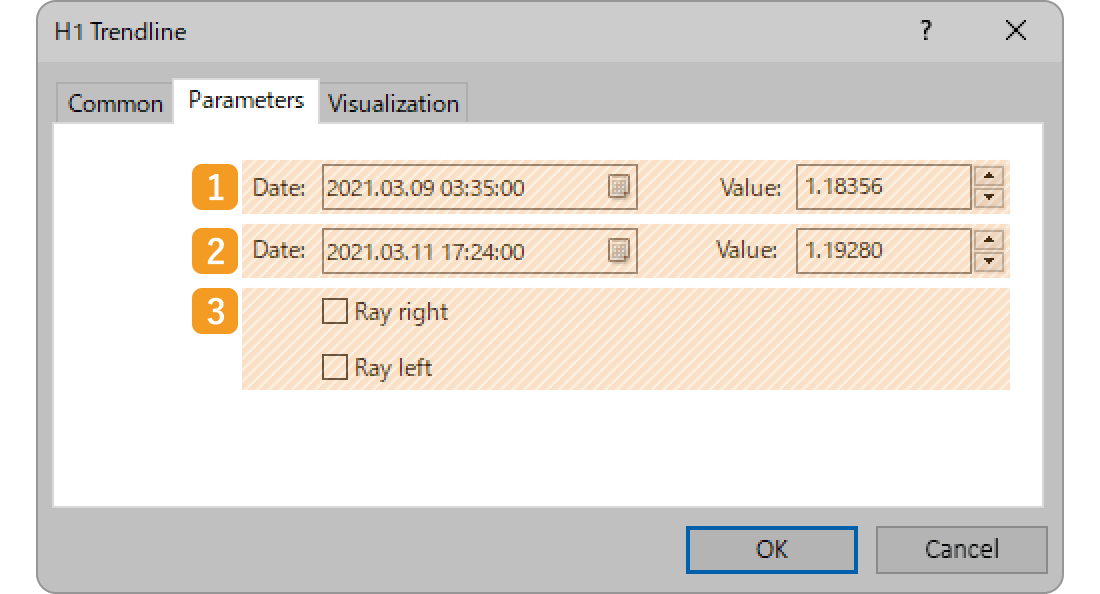
|
Number |
Item name |
Descriptions |
|---|---|---|
|
1 |
Starting point position |
Specify the starting point position by date and price. |
|
2 |
End point position |
Specify the end point position by date and price. |
|
3 |
Ray |
Check each box to extend the trendline to the left and right. |
"Ray" is a parameter that can be set on an object such as a channel to extend the line beyond its starting or end point. This makes it easier to analyze, as the line will be extended into the past or future, based on the price movement between the starting point and the end point at a certain point in time.
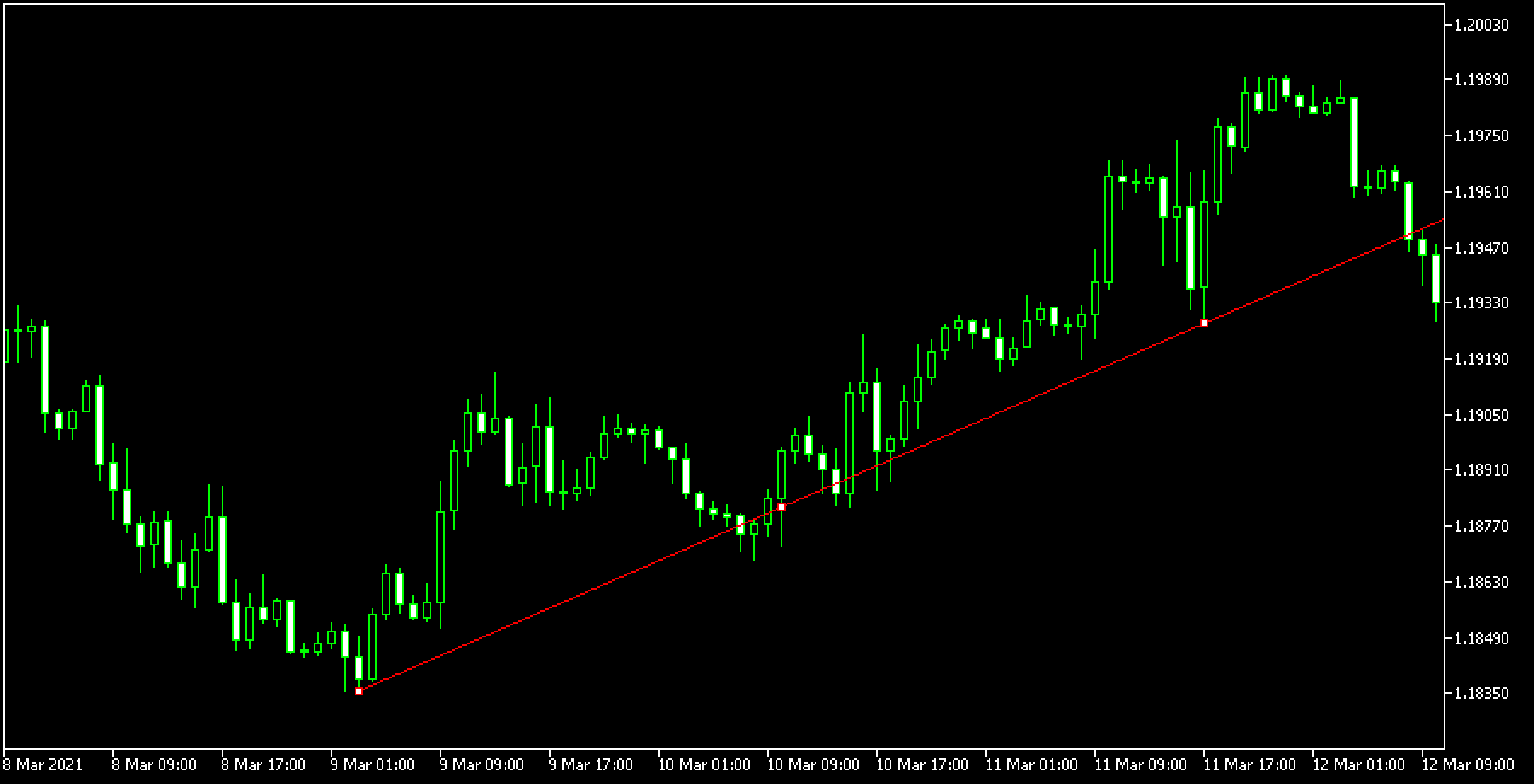
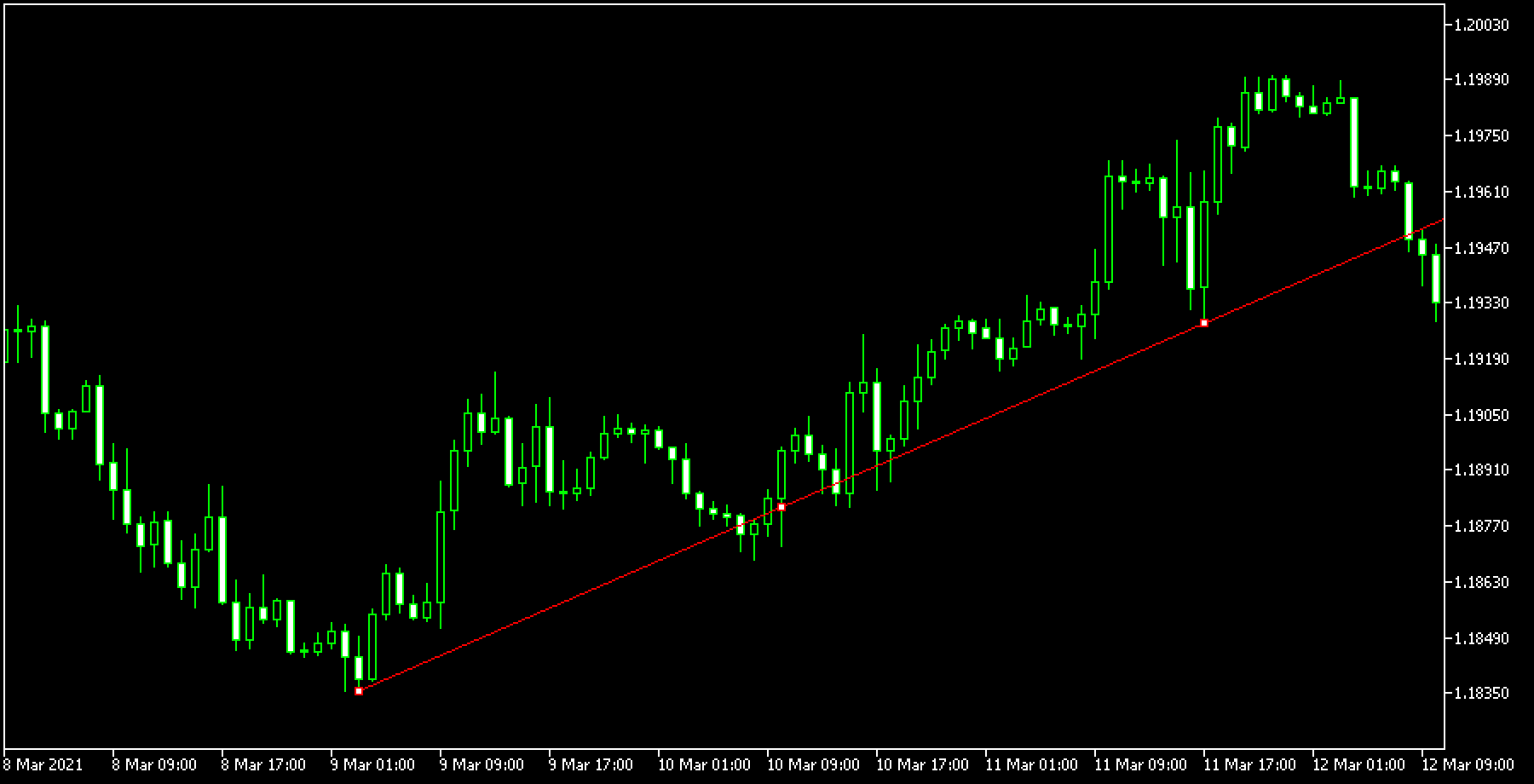
When "Ray right" is checked


When "Ray left" is checked
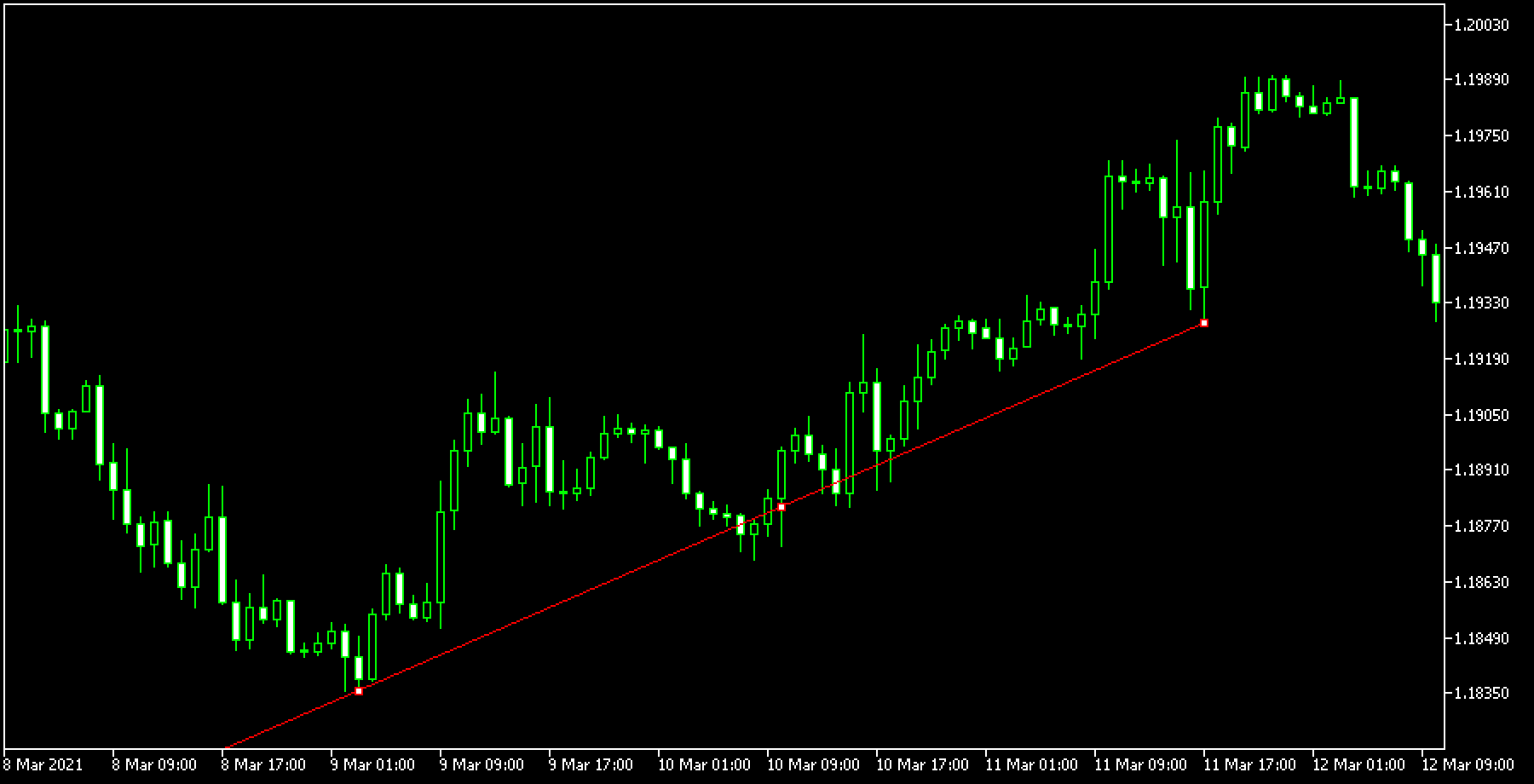
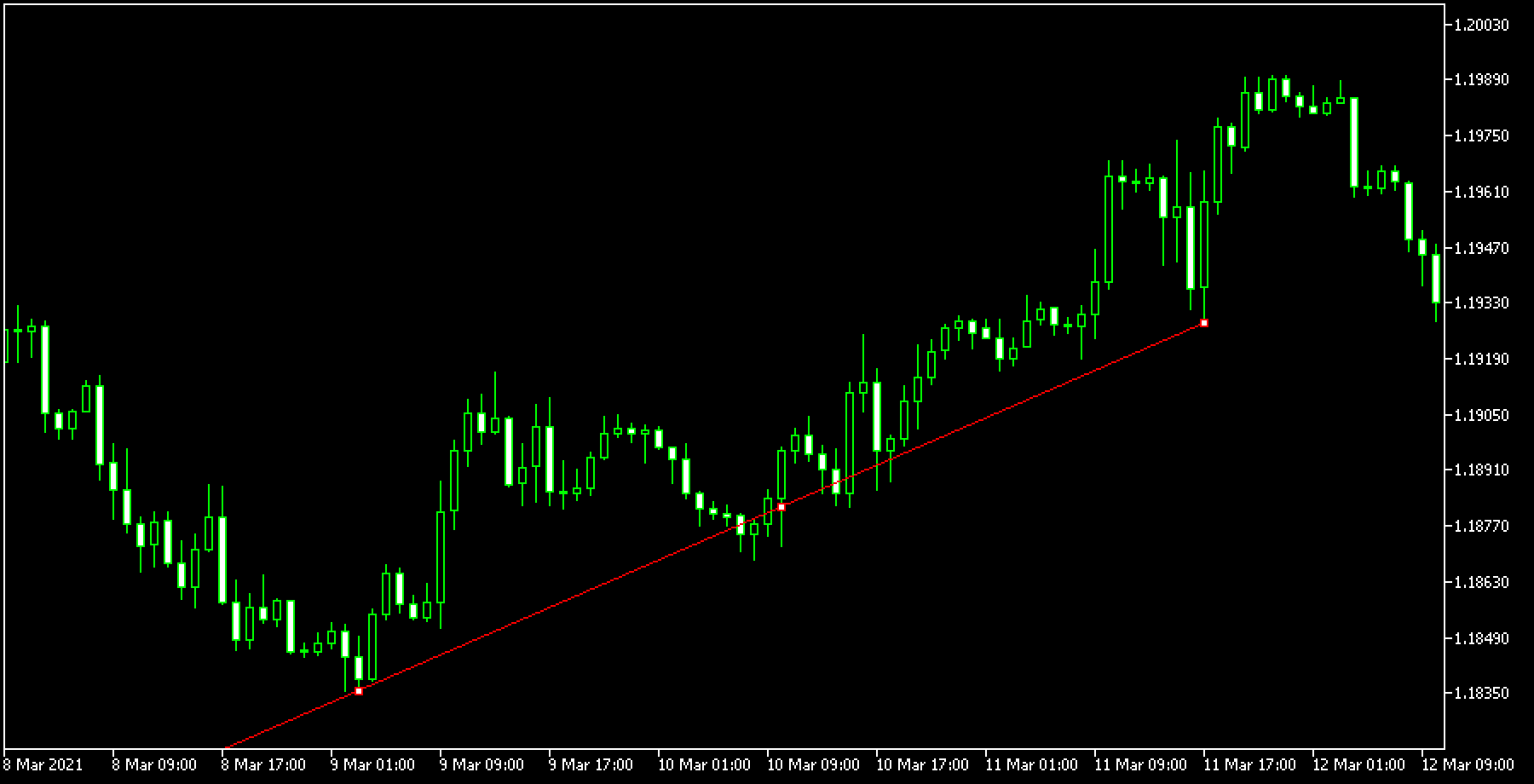
"Visualization" tab
On the "Visualization" tab, you can specify the timeframes to use the trendline with.
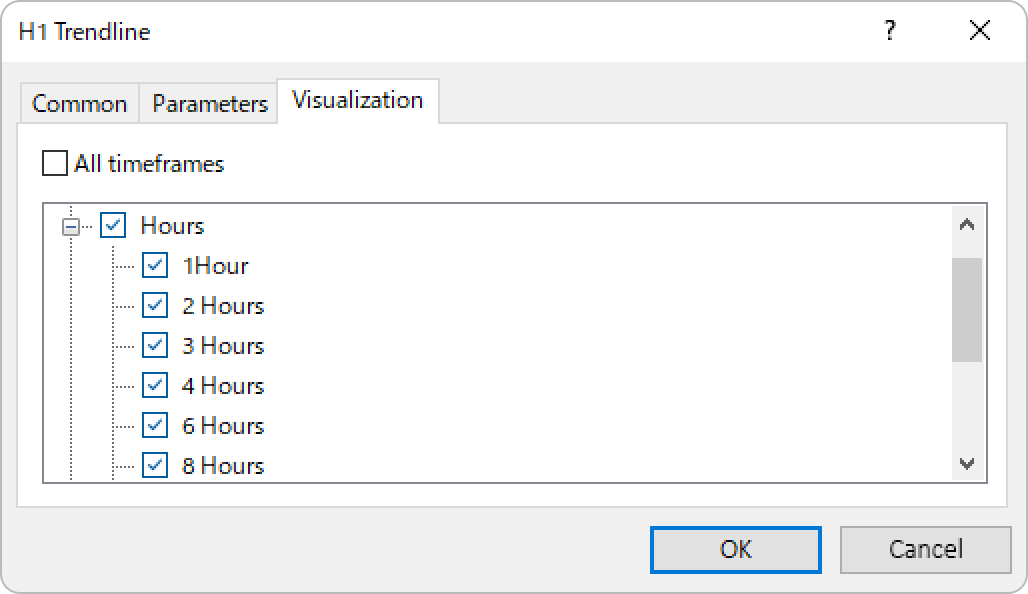
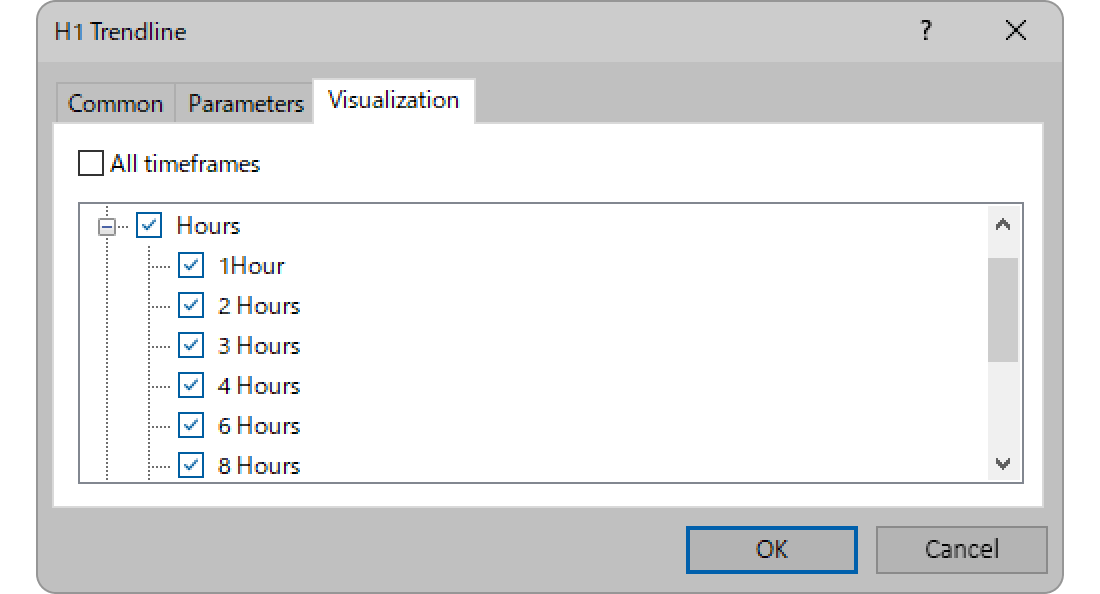
Unlike conventional trendlines, which connect two highs or two lows, internal trendlines are drawn between various points, such as highs and lows or closes and lows. This approach offers greater flexibility and a fresh analytical perspective but can also introduce a high degree of subjectivity.
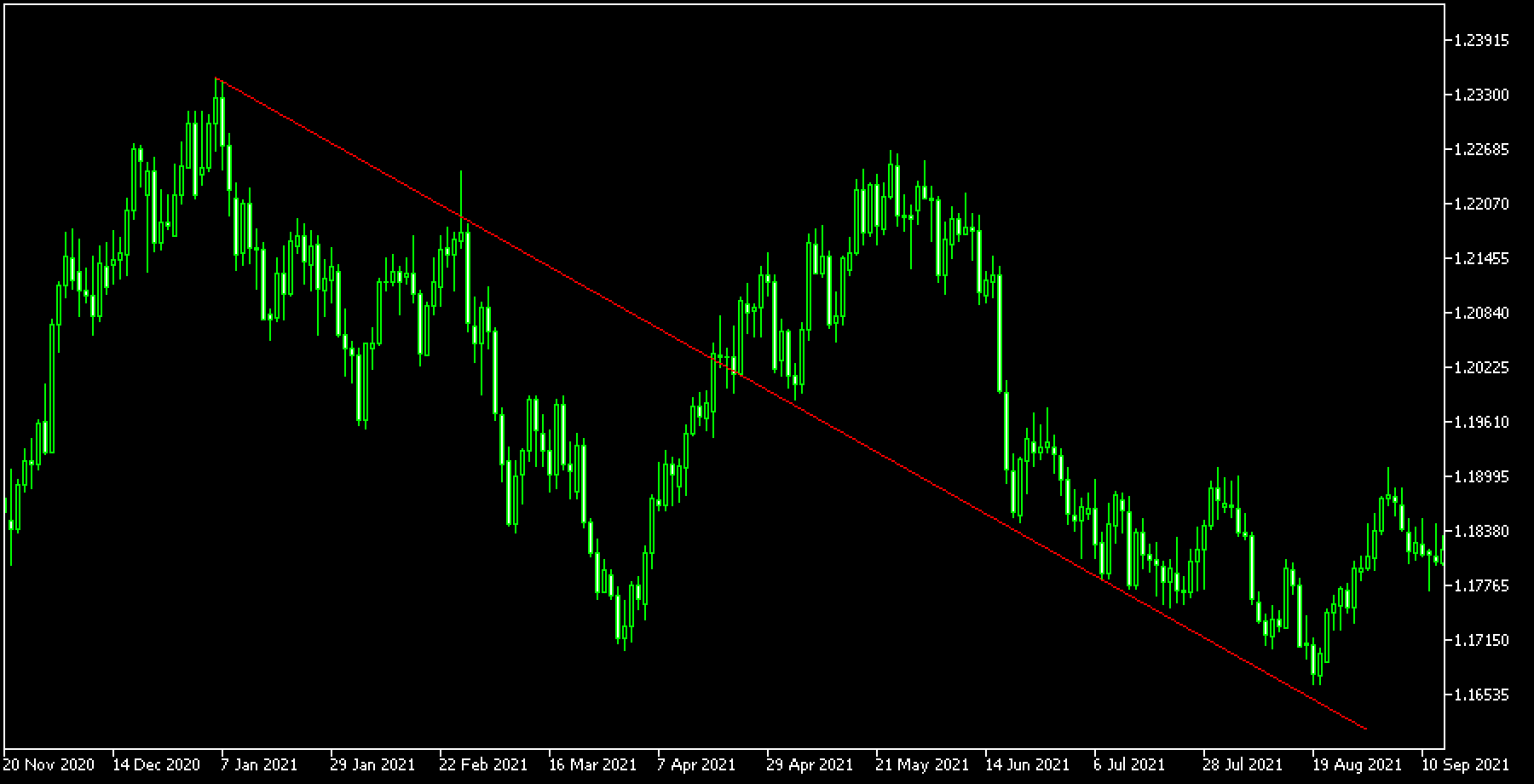
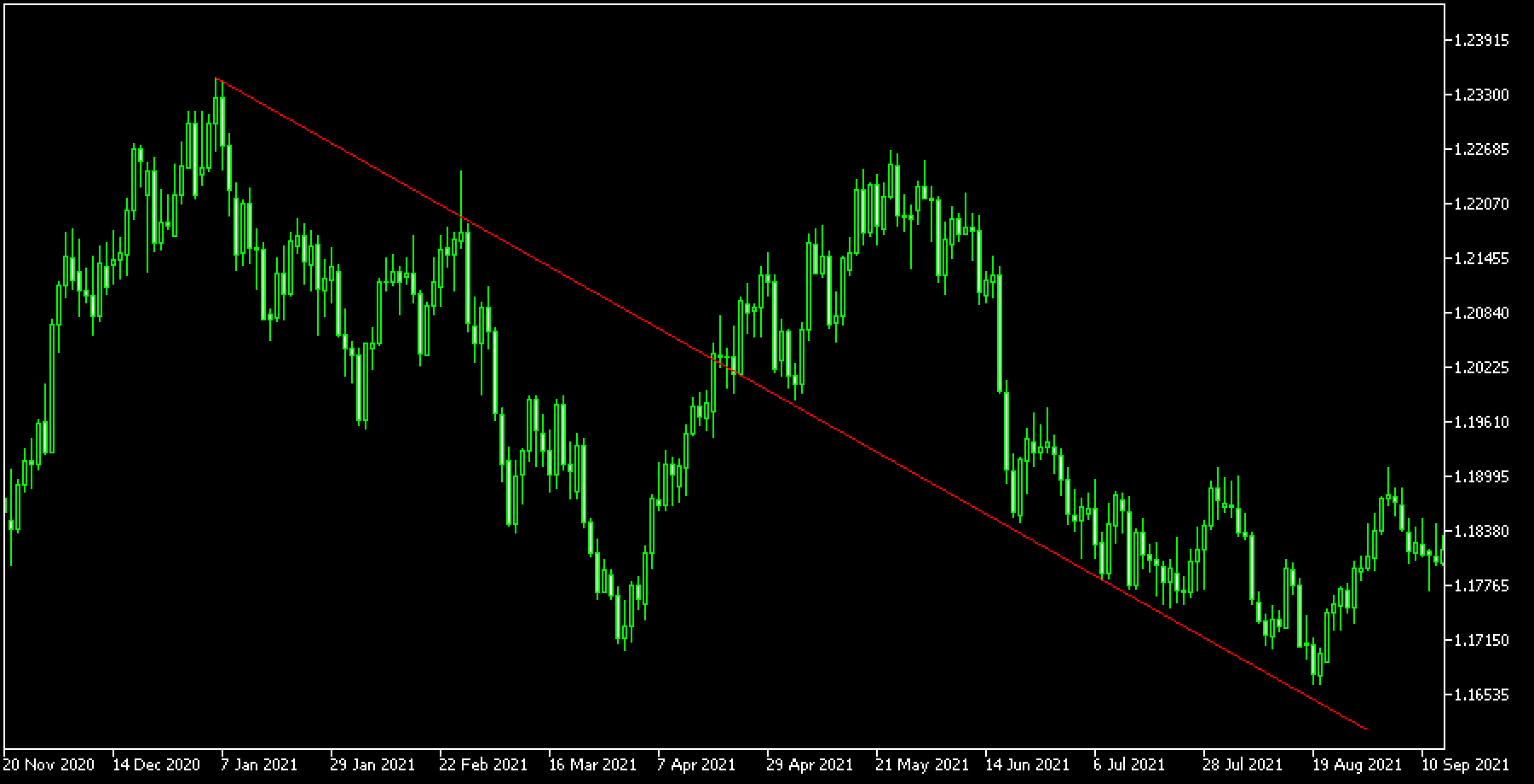
Was this article helpful?
0 out of 0 people found this article helpful.
Thank you for your feedback.
FXON uses cookies to enhance the functionality of the website and your experience on it. This website may also use cookies from third parties (advertisers, log analyzers, etc.) for the purpose of tracking your activities. Cookie Policy
